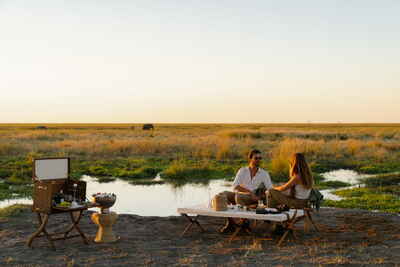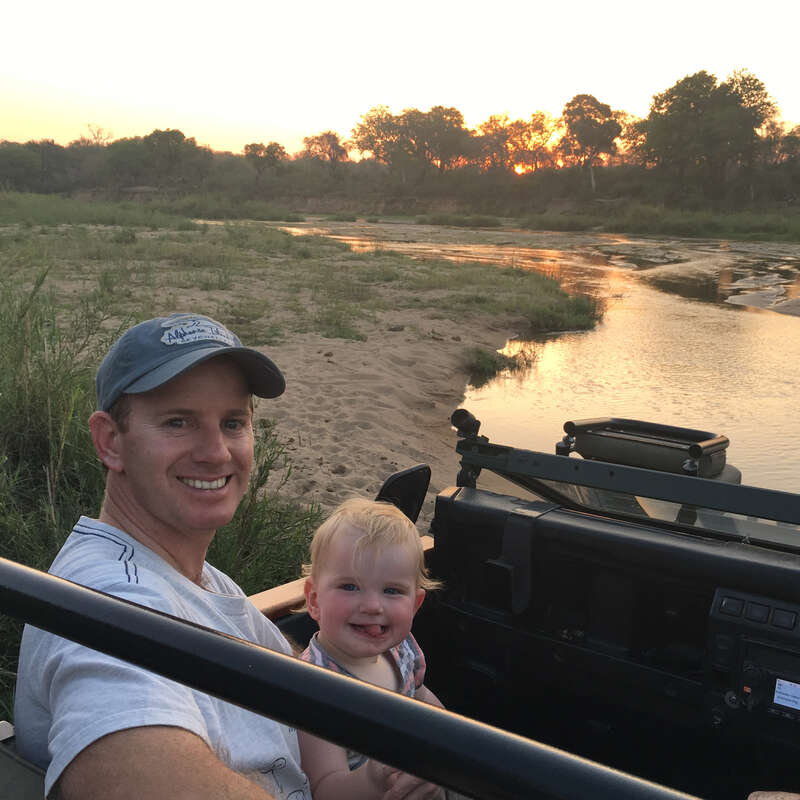About Wilderness Mokete
Vast golden grasslands fringed by marshes attract wildlife in exceptional numbers: this is Mokete in the dry season.
Towards the edge of Botswana’s expansive Mababe Depression, Mokete Camp immerses you in the vastness of Africa’s wilderness.
Drama unfolds daily as huge herds of buffalo march to the water, pounding the land to dust as they go. Lions wait in earnest; hyena and jackal attend on high alert.
Overlooking an apparently endless plain, this contemporary camp offers uninterrupted vistas of a landscape that feels boundless. Framed by a distant treeline, elephants amble across the horizon while you watch.
Take it in from the inviting lounge, or as you dangle your legs in the cool of your private plunge pool, or perhaps with drink in hand from the open-plan bar. Watch wildlife close up from the underground hide, or from the vantage of an open-sided game-viewing vehicle.
In the heat of the day, seek out the shaded sunloungers round the main pool, or retreat to the privacy of your chalet, where the flow of air through great big picture windows is enhanced by fans and overhead air conditioning.
Then, as night approaches, cosy up to watch the stars as the canvas roof over your bed is opened to reveal the night sky – with the sounds of the African bush all around.
Our view
We loved our time at Mokete Camp. It offers an exceptional wildlife experience during the dry season, showcasing large herds of antelope and in particular buffalo. However, these herds can be just out of photographic reach, making binoculars and patience essential; let the sightings develop and you will be rewarded. This contrasts starkly with the lush, watery landscapes of the Okavango Delta where wildlife is often very close. Note, too, that the dust during the dry season is unavoidable here. We haven't yet explored the area in the green or shoulder seasons, when birding is at its best, but would expect lower numbers of wildlife encounters with game drives restricted to drier land. Either way, a relaxed attitude is recommended while the camp and its staff become more established.
Accommodation
9 chalets
Children
Best for 13+
Open
All year
Activities

4WD Safari

Birdwatching

Guided walking safari

Helicopter

Night drive

Private activities
Traveller reviews of Mokete
2 real, un-edited reviews from Expert Africa's travellers.
Arrived 3 Mar 2025, 3 nights
"Super good"
Overall rating: Excellent
Arrived 26 May 2024, 3 nights
"Mokete review"
Overall rating: Good
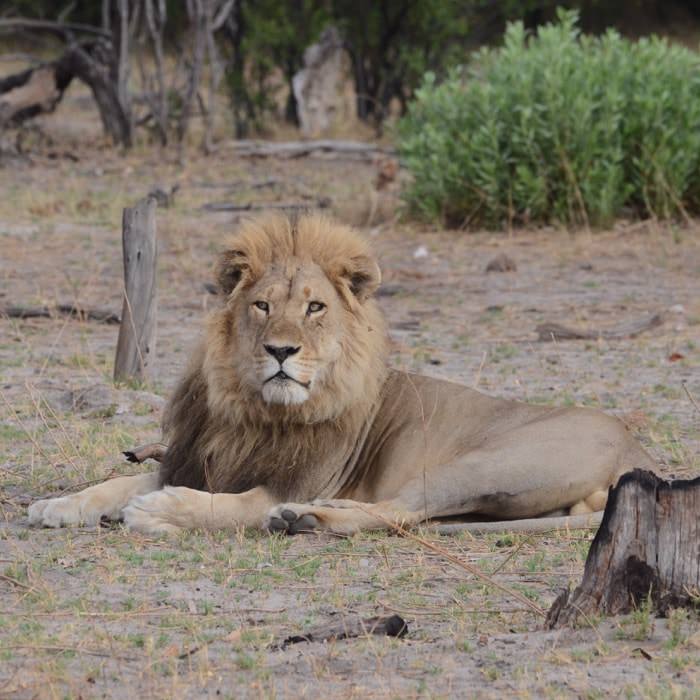
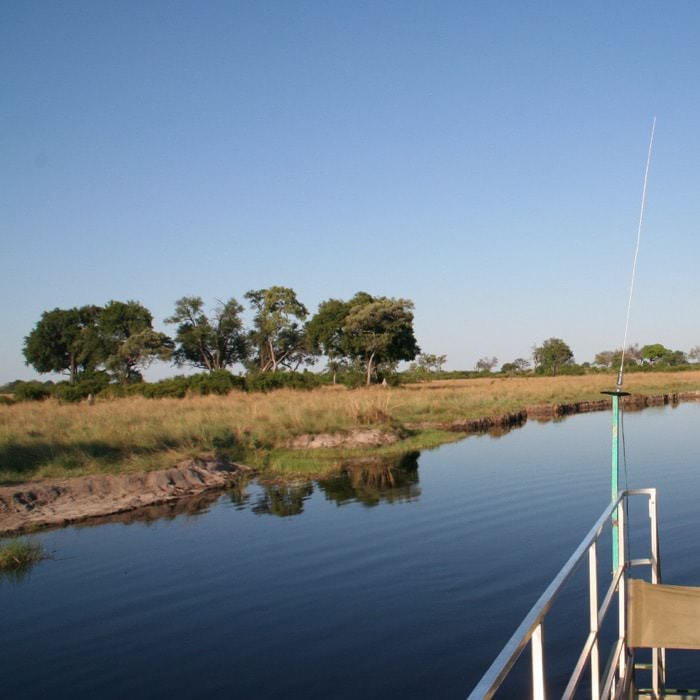
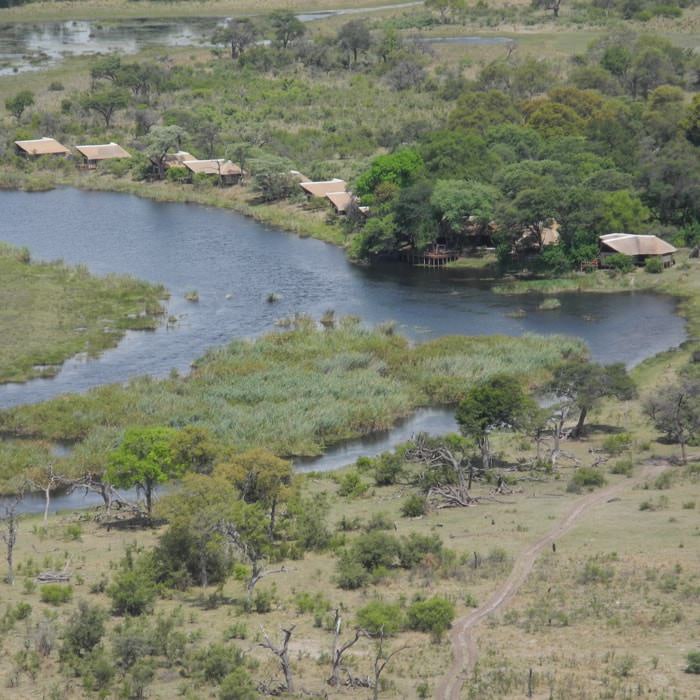
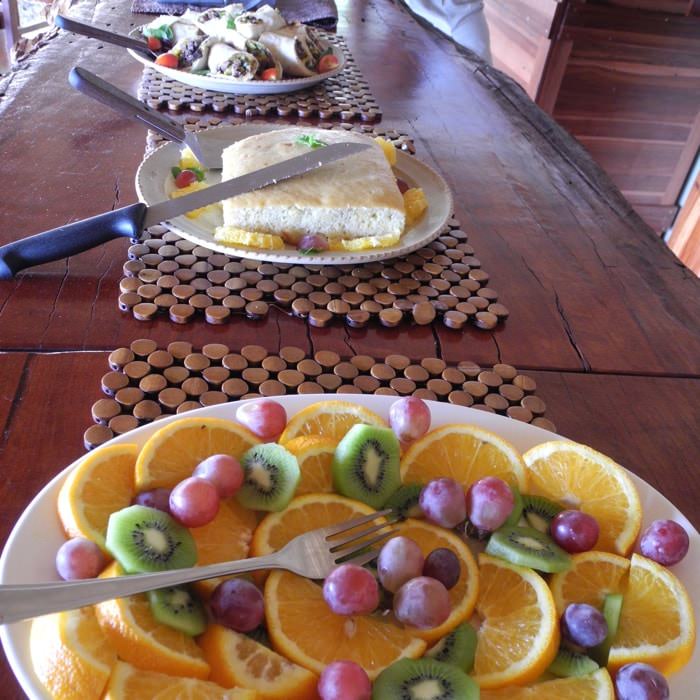
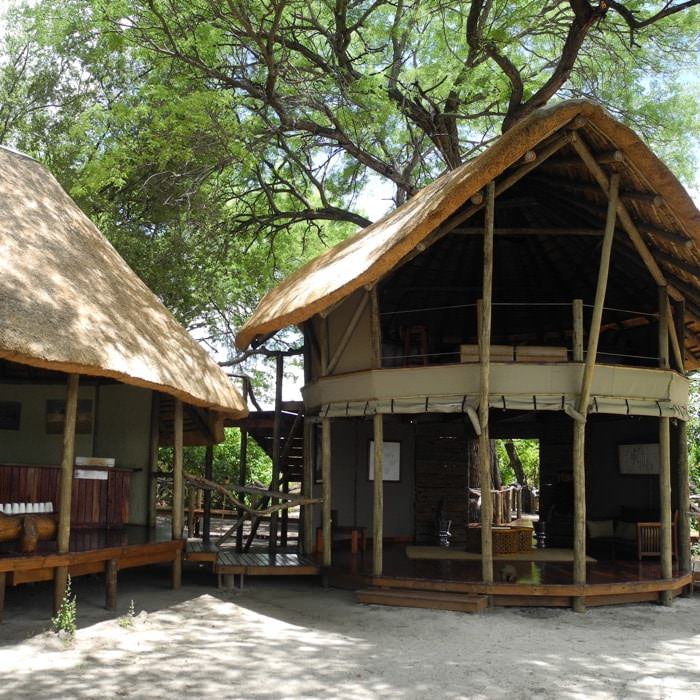
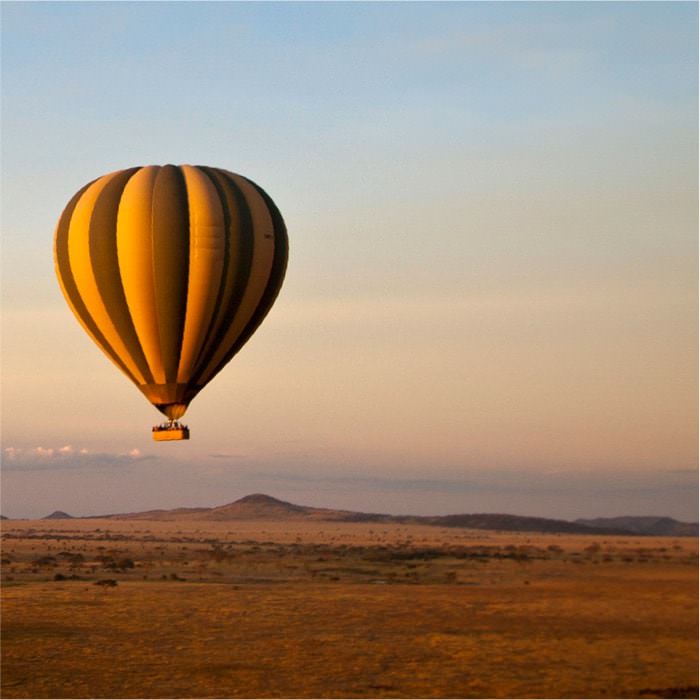
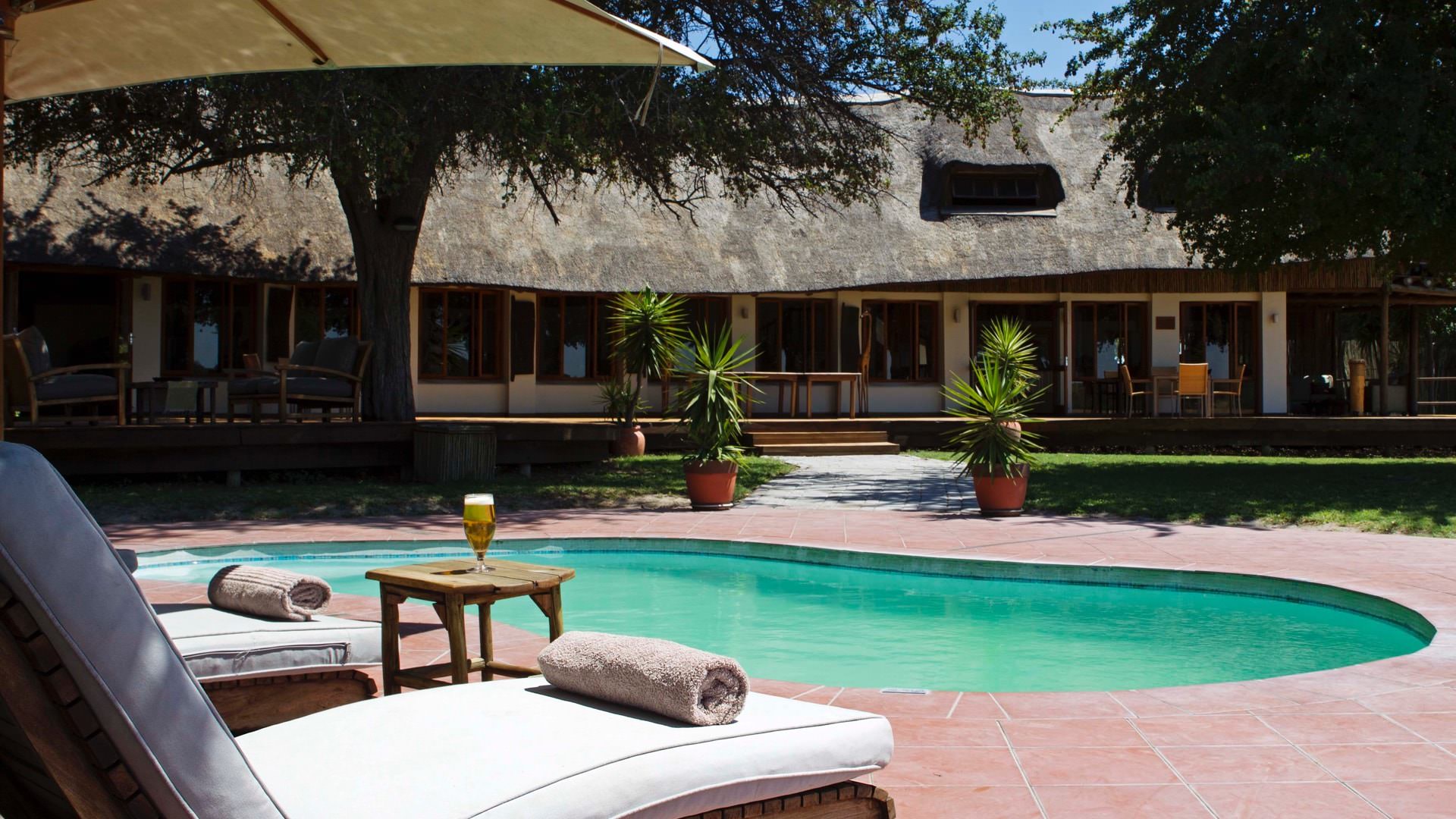
Expert Africa's gallery
When we travel we take lots of photos ourselves to give you a real and un-edited view of the safaris. See our 3 pictures of Mokete Camp to get the candid view.
View galleryMokete: Our full report
Opened in April 2024, in an area criss-crossed by animal trails, Mokete Camp is new.
It stands in quite an innovative location in the Mababe Depression, just beyond the eastern edge of the Okavango Delta.
There are wetlands in season here, when the floods from the Delta extend this far, but in most respects it is more of a “Kalahari” wilderness destination, with areas of vast open grasslands, marshes, mopane forests and a few honey-pot waterholes, which form the centres of endless game trails.
Mokete (which means “celebration” in the Setswana language) is a celebration of the bounty of life amidst the immense flat grasslands of the Mababe Depression since 2013. It was then, when the tectonic plates deep under the Okavango faultlines shifted, that the Khwai River started flowing into the area, creating a haven for wildlife; how long it will last will depend on the movement of those faultlines.
The camp stands in a private concession to the east of Moremi Game Reserve's Khwai River area. We first visited in October 2024, and were really impressed.
The nine wood-and-canvas chalets at Mokete are of a good size, built on raised decks above the surrounding bush. All are open on several sides to allow the air to flow freely.
Innovative insulated canvas walls and roofs, together with an Evening Breeze cooling system, a ceiling fan and a standing fan, combine with large mesh windows to help keep the interior relatively cool, while roll-down canvas and clear plastic blinds come into their own in case of inclement weather. We liked the idea that the roof above the bed the tent could be opened to allow you to sleep under the stars, although a larger view would have been good.
The chalets are decorated in neutral tones and simply, but comfortably, furnished, with lots of wood, soft suede and leather. The beds, which can be made up as twins or a double, face out towards the fantastic views of the trails and plains beyond. You'll also find a writing desk with a lamp, universal plug points for charging camera batteries, and a tasteful wooden tray featuring tea and coffee, a flask of hot water (which is topped up with boiling water every morning and evening), mugs, glasses and a jug of iced water. A comfortable armchair and sofa in the lounge area at the front of the tent look through the enormous mesh window.
A door to one side of each chalet leads to the en-suite bathroom, complete with a flushing toilet, twin handbasins and mirrors, and a walk-in shower. You'll also find plenty of wooden shelves and hanging space for clothes, extra blankets for chilly winter nights, a digital safe, insect repellent and environment-friendly shower gel, shampoo and conditioner.
Outside on the same platform as the tent is a small plunge pool with two chairs and another table under a shaded porch. We had an exciting moment during the night when we woke to the sound of an elephant drinking from our pool!
Mokete has no dedicated family rooms, but in each chalet an extra bed can be added to the lounge area,
Linking the chalets to the main area are raised boardwalks, without handrails, that unfortunately are poorly lit at night.
This main area is central to the camp, with views out to the plains beyond. Much of it is taken up by an inviting lounge area, an eclectic gathering of comfortable chairs, tea- and coffee-making facilities with freshly baked biscuits in a jar, and a small reference library. At the heart of the building, the open plan bar is the venue for pre-dinner drinks, while opposite is the indoor dining area, although tables are often set up on the veranda area. A small curio shop sells a selection of locally made items.
Welcome relief from the Kalahari heat comes from a small saltwater pool set into a shaded deck with comfortable sunloungers. Behind this is a small waterhole, where the intention is to create a hide from the existing shelter.
Mokete is proudly run off a state-of-the-art solar system, which runs off 72 solar panels and provides all the electricity and hot water in camp. Water is life in this dry environment, and on a “back-of-house” tour you can learn about the water storage and distribution.
Inevitably, in a new camp with a new team, there were glitches during our stay in October 2024, including stocktaking in the bar, for example, but we hope that these will iron themselves out as the team gels. It was also good to see coarse sand being delivered to try and limit the clouds of dust rising from the main access track.
Out of camp, guided morning and afternoon game drives in open 4WD vehicles are the mainstay of the activities at Mokete, but what you see will depend largely on the season, and the timing of the rains. During the dry season, the underground hide on the edge of the marshlands where the Khwai River empties into this vast landscape, is particularly productive. This underground hide is best visited during the heat of the day, it is best to chat to your guide about a visit.
On the tip of everyone’s tongue before our visit was “lion and buffalo interactions”; we were not disappointed. Large herds of many species included tsessebe in the hundreds, when normally they are seen as small groups of 8–15, and buffalo in the thousands. Among our highlights was watching wild dogs blasting through a herd of buffalo as they hunted impala, and watching a pride of 17 lions eat two buffalo they had killed not an hour earlier. At the same lion sighting, we scanned the horizon with our binoculars and counted 160 elephants feeding at the edge of the marsh!
Despite such incredible wildlife viewing, there is one big downside: the dust. With millions of hooves crushing the fine sediments deposited by the Okavango, dust is part of the experience. While it can lead to truly dramatic photographs, it can also be challenging visually. (We suspect that over time the housekeeping team will struggle to keep ahead of the battle, too.)
During the green season, we expect the game viewing to be more challenging. While this is an excellent time for birding and we have been led to believe that the buffalo herds are resident, much of the marsh may be inaccessible due to the deep clay soils, confining the majority of exploration to the fringes of the marsh and the significant pan systems within the mopane woodlands.
Geographics
- Location
- Moremi Game Reserve, Botswana
- Ideal length of stay
- We'd expect 3–5 nights here to be ideal, depending on the focus of your visit.
- Directions
- Mokete is accessed exclusively by helicopter and is a 45 minute flight from Maun.
- Accessible by
- Fly-and-Transfer
Food & drink
- Usual board basis
- Full Board & Activities
- Food quality
- In October 2024, all the dishes we sampled were delicious. As far as possible, ingredients are locally sourced. With advance notice, the camp can cater for vegetarian and many other dietary requirements.
The day usually starts with a light breakfast of toast, fruit, cold meats and cereal, along with tea and coffee, served prior to your early-morning game activity. A full breakfast of eggs, bacon and sausages is also available.
Brunch is offered after the morning activity. We were served a delicious meal of hake, beetroot salad, artichoke green salad and homemade bread. We were also treated to an incredible private lunch, of beef fillet with avocado salsa and chickpea salad.
Afternoon tea, at around 4.00pm, usually combines a savoury snack, like homemade sausage rolls, with something sweet such as fresh doughnuts and a fruit salad. These are served with fruit juice, hot and iced teas and coffees.
Dinner is usually a plated starter; ours was butternut soup and home-made bread. For the main course, an excellent lamb stew came with mushroom and bulgur wheat, lentil and green-bean salad and a green salad. Dessert was malva pudding. - Dining style
- Mixture of group dining and individual tables
- Dining locations
- Indoor and Outdoor Dining
- Further dining info, including room service
- There is no room service.
- Drinks included
- Bottled water, soft drinks, local beers and spirits and a limited selection of (usually) South African red and white wines are included. Champagne and imported wines and spirits will cost extra and may need to be requested in advance.
Guests are given an aluminum water bottle on arrival which they are encouraged to top up with cold water in the camp's main area during their stay.
Special interests
- Honeymoons
- Mokete, with a private plunge pool in each chalet, and numerous hidden locations for surprise dinners and lunches, makes an incredibly romantic setting as part of a honeymoon in Botswana.
- See ideas for Honeymoons in Botswana
- Photography holidays
- With vast numbers of wildlife in the dry season, Mokete should be high on the list for photography in Botswana. We recommend booking a private vehicle to enable you to set up a specific shot, such as capturing the drama of a herd of buffalo running to water.
- See ideas for Photography holidays in Botswana
- Wildlife safaris
- Mokete offers some of the best wildlife safaris in Botswana during the dry season, with a huge focus on herds of buffalo that regularly exceed a thousand individuals, and the lion encounters that ensue. In the shoulder and green season, wildlife will be a little tricker to spot.
- See ideas for Wildlife safaris in Botswana
Children
- Attitude towards children
- Children over 12 are welcome at Mokete. The camp may accept children aged 6–12, but private activities must be booked, and these will be at an extra cost.
- Property’s age restrictions
- Minimum age 6 years
- Special activities & services
- With no family room, this camp is not focusing on family travel.
- Equipment
- An extra bed can be set up in the lounge area of each chalet for a child.
- Generally recommended for children
- We would recommend Mokete for more mature children aged 13 years or older. This is in part because big-game interactions can make game drives longer than at other camps as you wait for a sighting to develop.
- Notes
- Mokete is unfenced, and wildlife is known to wander through the camp on a regular basis. Each chalet has a plunge pool, and neither this nor the main pool are fenced. Children must be under the constant supervision of their parents or guardians
Our travellers’ wildlife sightings from Mokete Camp
Since mid-2018, many of our travellers who stayed at Mokete have kindly recorded their wildlife sightings and shared them with us. The results are below. Click an animal to see more, and here to see more on our methodology.

100% success

100% success

100% success

100% success

100% success

100% success

50% success

50% success

50% success

50% success

50% success

0% success

0% success

0% success
Communications
- Power supply notes
- The camp has a state-of-the-art eco-system for power and water, especially important as it's in a relatively remote area of the Kalahari with no permanent, natural standing water. There is a back-up generator
- Communications
- WiFi is provided in the chalets only, but there is no cellphone reception, no direct phone and no email. Communication is maintained with the head office in Maun via radio.
- TV & radio
- There is no TV or radio.
- Water supply
- Borehole
- Water supply notes
- All toilets, basins and showers are plumbed in. The water from the borehole is saltier than seawater, so is used for such things as showers and the pool.
Health & safety
- Malarial protection recommended
- Yes
- Medical care
- The nearest doctor is in Maun. All management and guides are first-aid trained and medical evacuation is available in case of emergency. There is a nurse on call (via radio) 24 hours a day. Please note that it is only possible to fly out of camp during daylight hours as the landing pads do not have any lighting at night.
- Dangerous animals
- High Risk
- Security measures
- Guests are escorted to their rooms after dark as the camp is unfenced and dangerous wildlife is known to wander through. A thorough safety briefing is given on arrival. “Fog horns” are provided in the chalets to attract attention in case of emergency.
- Fire safety
- There are fire extinguishers at all the tents and in the main area.
Activities
4WD Safari
Birdwatching
Guided walking safari
Helicopter
Night drive
Private activities
Extras
- Disabled access
- On Request
- Laundry facilities
- A laundry service is included. Laundry is collected in the morning and usually returned the same day, weather permitting. For cultural reasons and because clothes are generally handwashed, the staff do not wash underwear. Detergent is provided in each chalet for guests who wish to do handwashing.
- Money
- No exchange facilities are offered. There is a small safe in each chalet, and a larger one in the office.
- Accepted payment on location
- Mastercard and Visa credit cards are accepted; Diners and Amex are not. Cash in the form of South African rand, GB sterling, US dollars, euros and Botswana pula is accepted.
Plan and book your trip with Expert Africa
All of our trips are tailor-made, so we'll always adapt them to suit you. Talk to an Expert and let us plan and arrange your perfect trip.

Talk to an Expert
Call or email us now! We’ll match you with the Specialist in our team who is best suited to help you. Then together we can start planning your trip.

Set up your itinerary
Based on our experience and your ideas, your specialist will create a detailed, costed itinerary. We’ll refine it together, until we have a trip that you’re perfectly happy with.

Prepare for your trip
The same Specialist will make the seamless arrangements for your trip, send you detailed travel documents, and be available to answer any questions before you depart.

Travel with peace of mind
After you set off, you’ll be cared for by our partners in Africa, most of whom have worked with Expert Africa for decades. And if you ever need us urgently, we’re available 24/7.

When you return
We love to learn about your trip, and so will always be grateful if you’ve the time to give feedback to your Specialist when you return.
Mokete
On the edge of the Mababe Depression, Mokete overlooks vast golden grasslands in the dry season, proving a magnet for wildlife.
Excursions from Mokete Camp
Optional extra day-trips and excursions possible whilst you're staying at Mokete Camp. Talk to us: these are usually best arranged before you go.
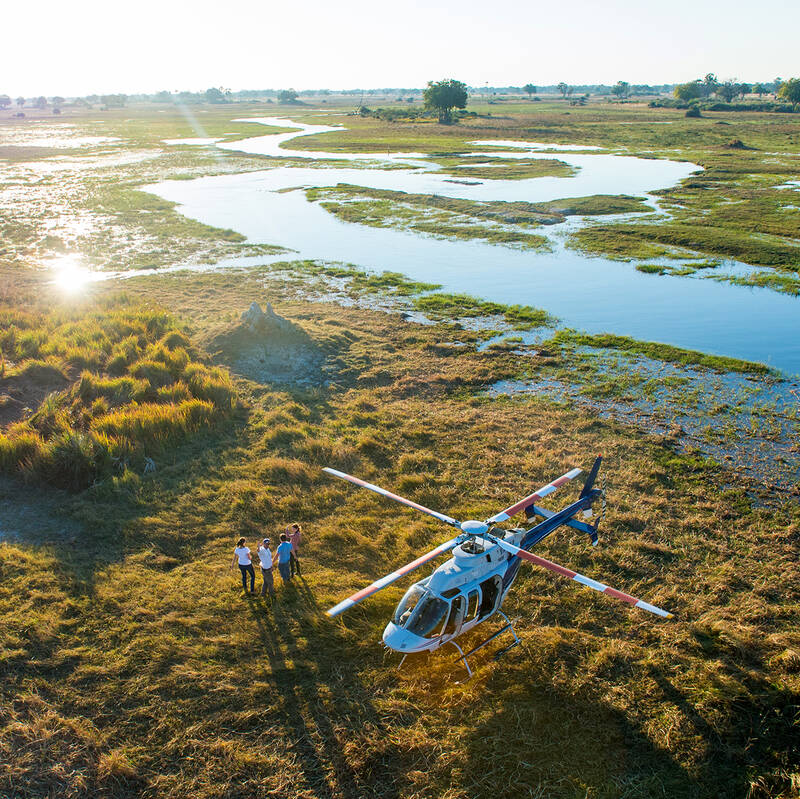
Helicopter Flight - Botswana
Various: from 30 minutes to half a day.
Low-flying, agile and offering superb views, helicopters are an ideal way to move around the Okavango Delta.You can use them instead of fixed-wing inter-lodge transfers or as an addition to other wildlife watching activities, and of course, helicopters can hover to allow that perfect pic, whereas fixed-wings can’t.
More about Helicopter FlightOther lodges relatively near Mokete
Alternative places to stay in and around this area east of the Delta.
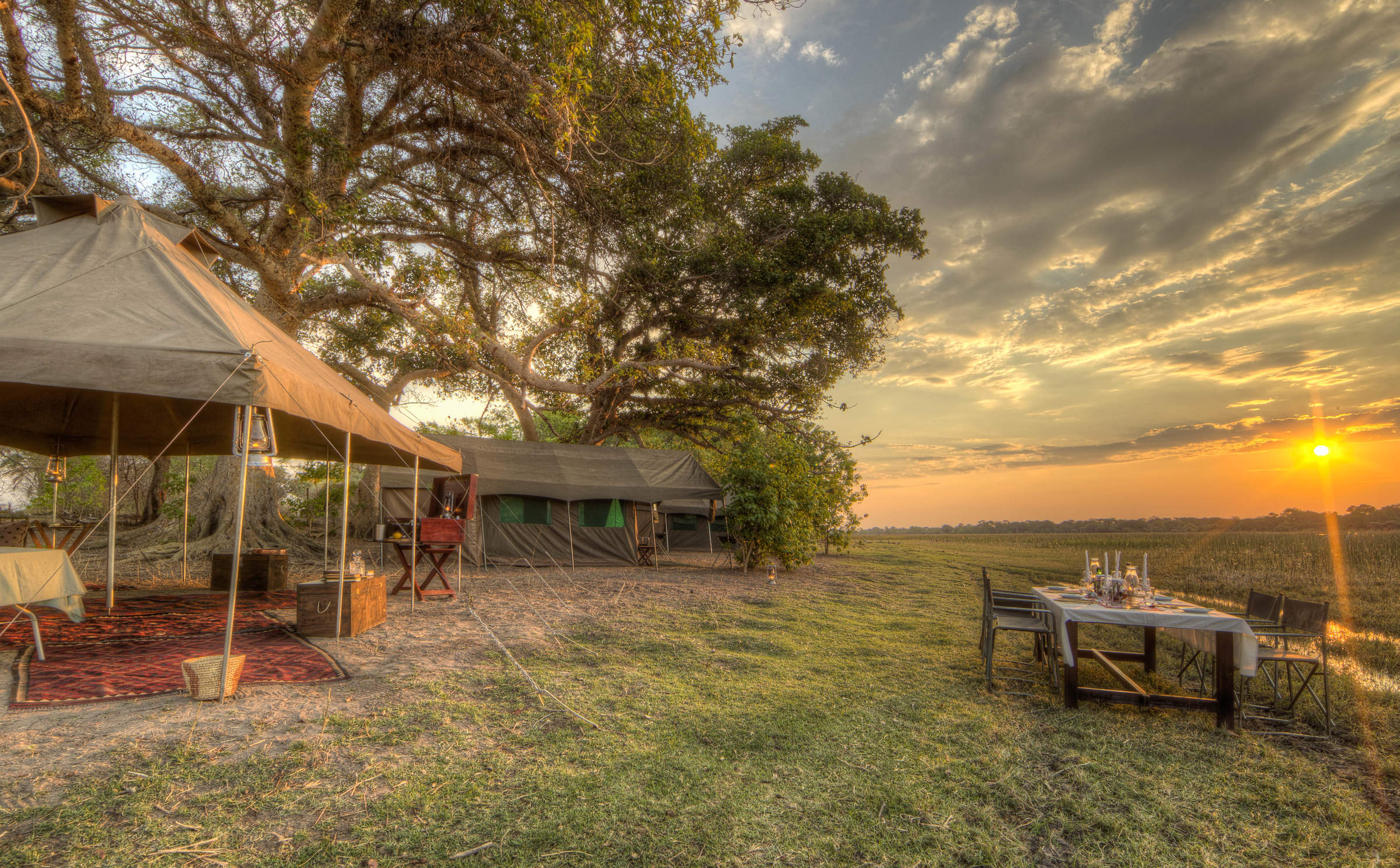
Private Mobile
The Botswana Private Mobile Safari has no fixed location; it's exclusive to your group and comes with a top professional guide. Expect comfortable camping, great food, and a superb wildlife experience wherever you decide to go.
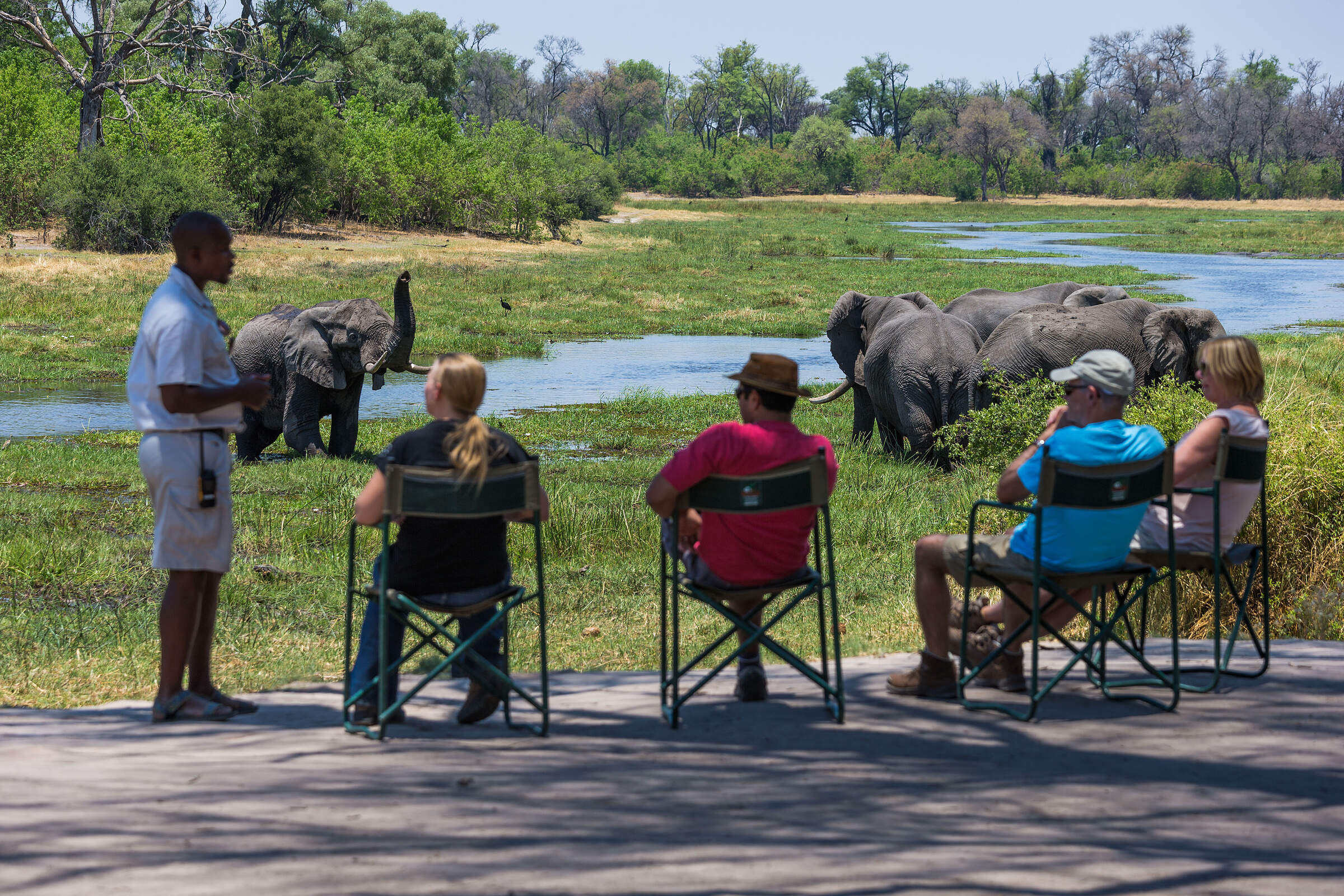
Machaba Camp
Overlooking the Khwai River to Moremi Game Reserve beyond, the classic Machaba Camp combines comfort with excellent game viewing.
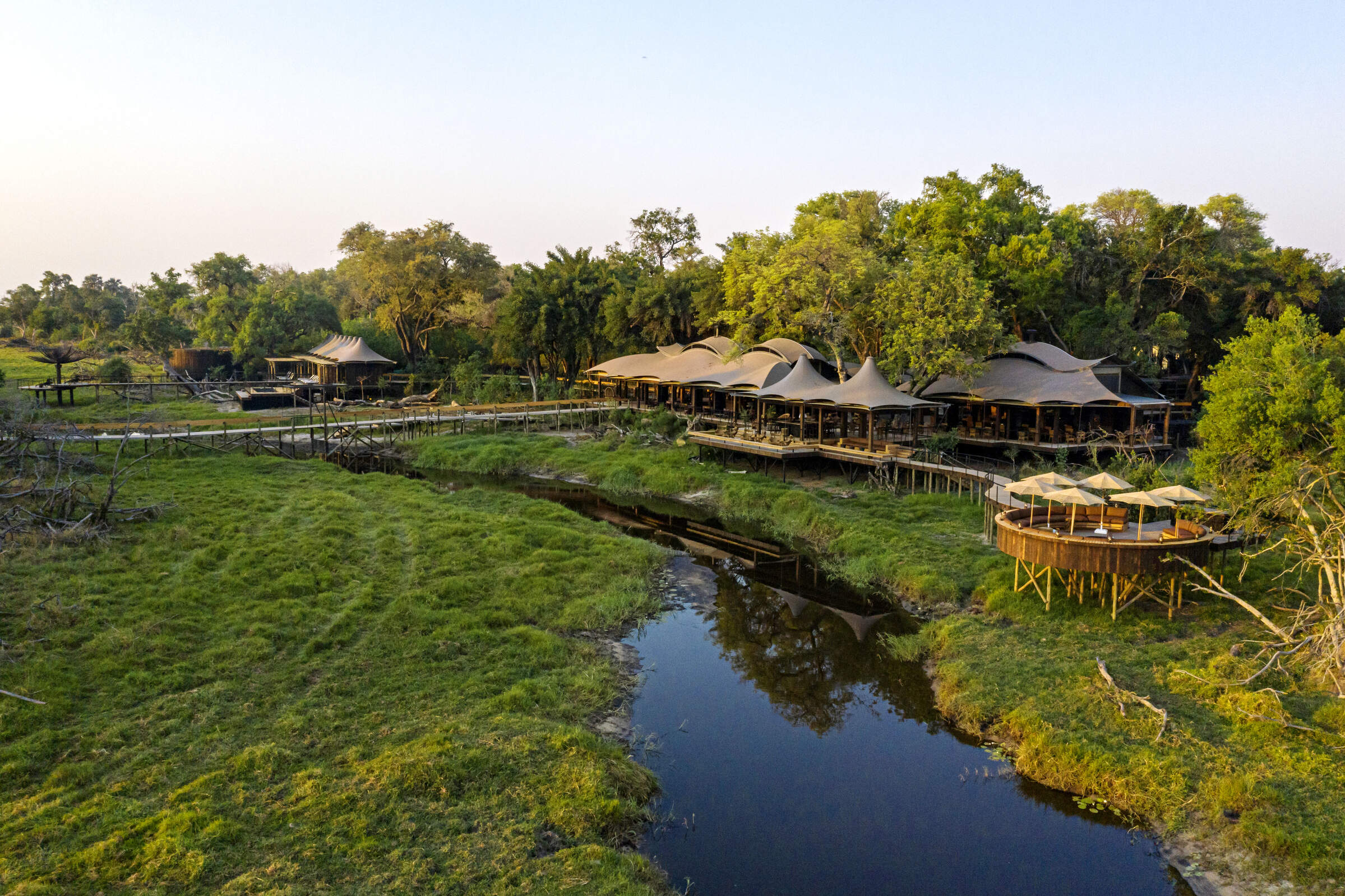
Xigera Safari Lodge
Located deep in Botswana's Okavango Delta, Xigera Camp normally focuses on mokoro excursions and motorboat trips, with 4WD game drives when water levels permit.
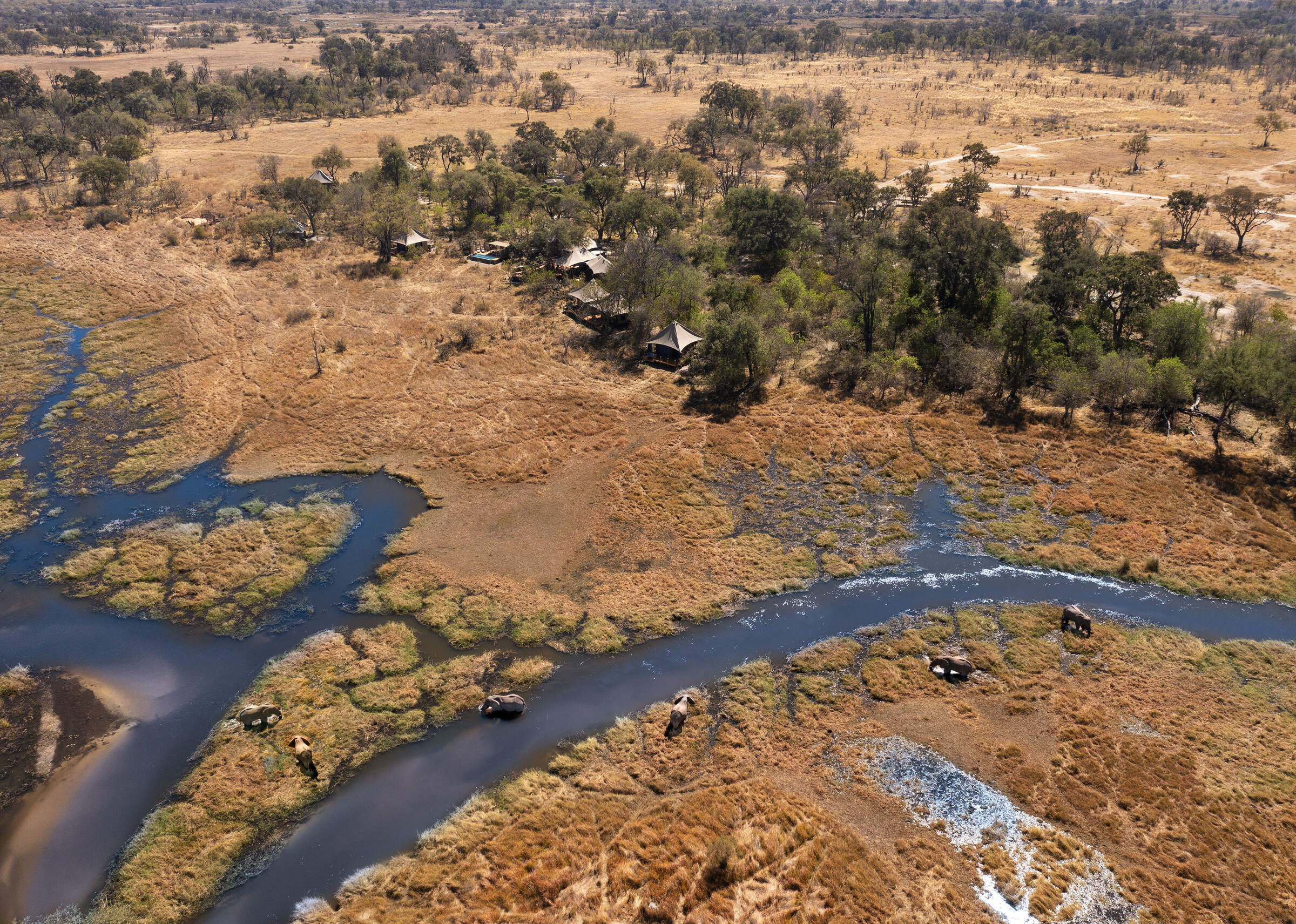
Khwai Lediba
Khwai Lediba offers a traditional African safari experience, with very comfortable tented accommodation, in a fantastic game area north of the Moremi Game Reserve.
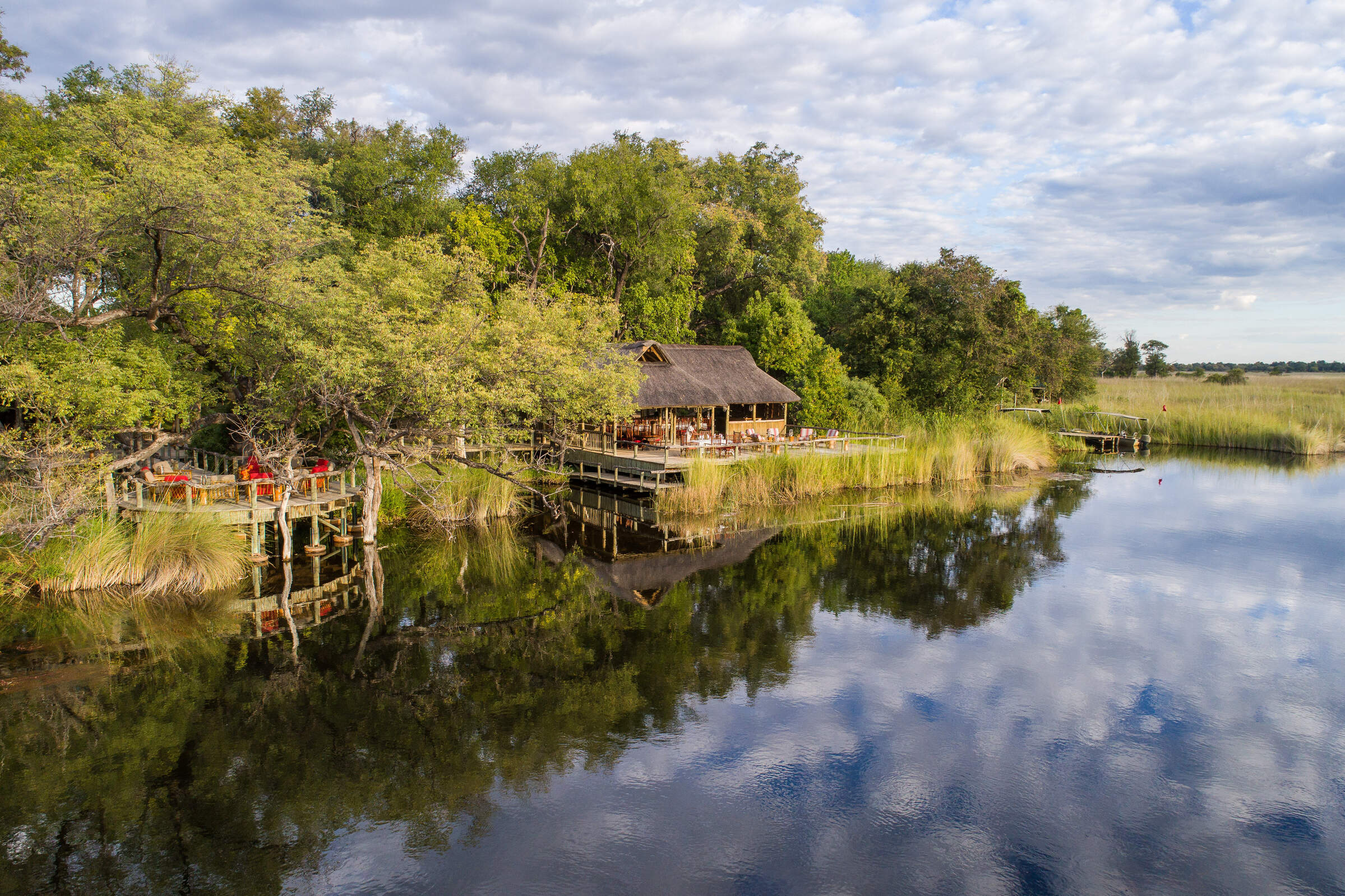
Xakanaxa
Camp Xakanaxa is a well-established traditional camp beside a huge lagoon within the Moremi Game Reserve, with access to some superb wildlife viewing.
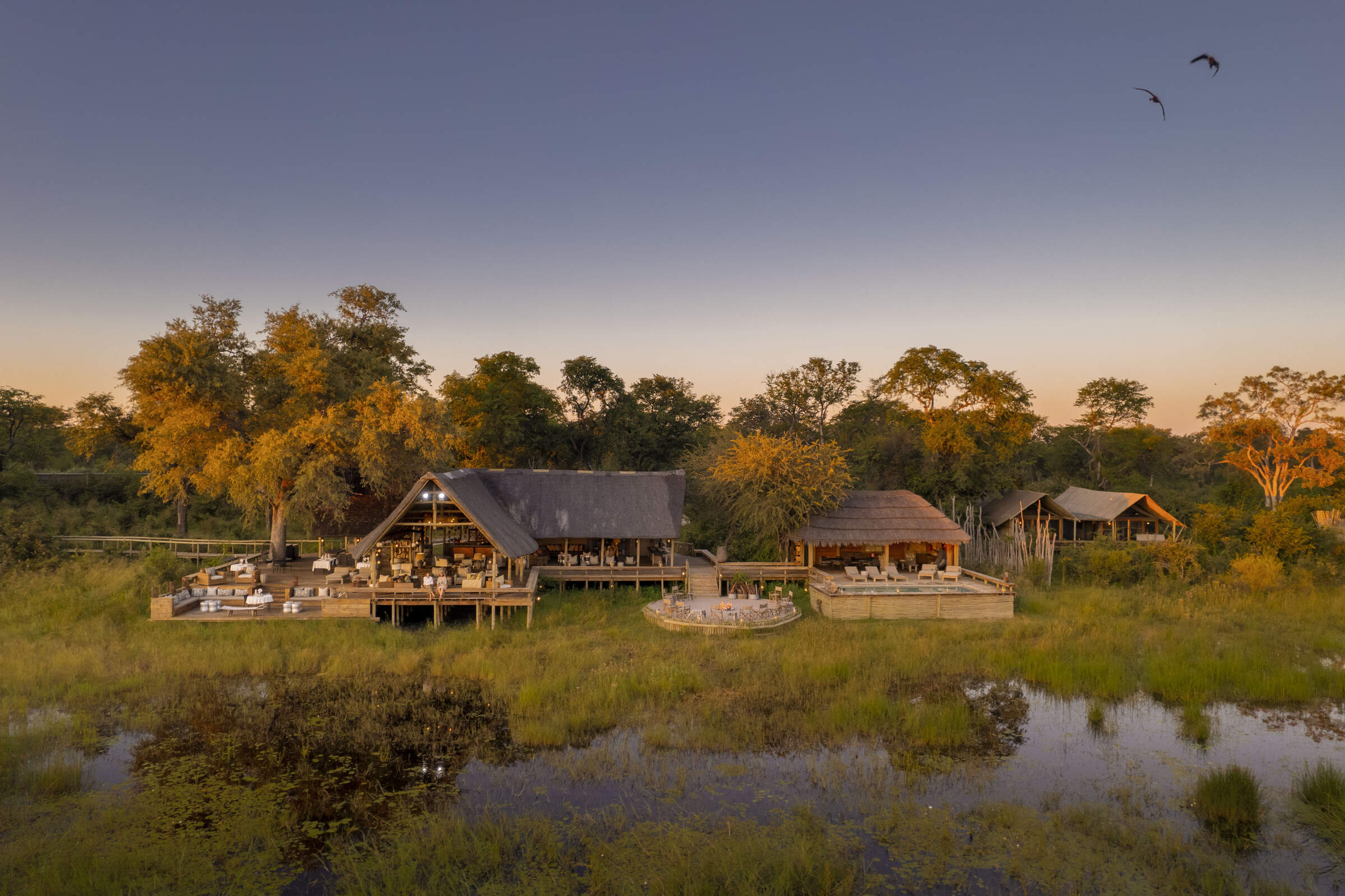
Sable Alley
Smart, independent and well-run, Sable Alley overlooks a beautiful, hippo-filled lagoon within the diverse Khwai Private Reserve.
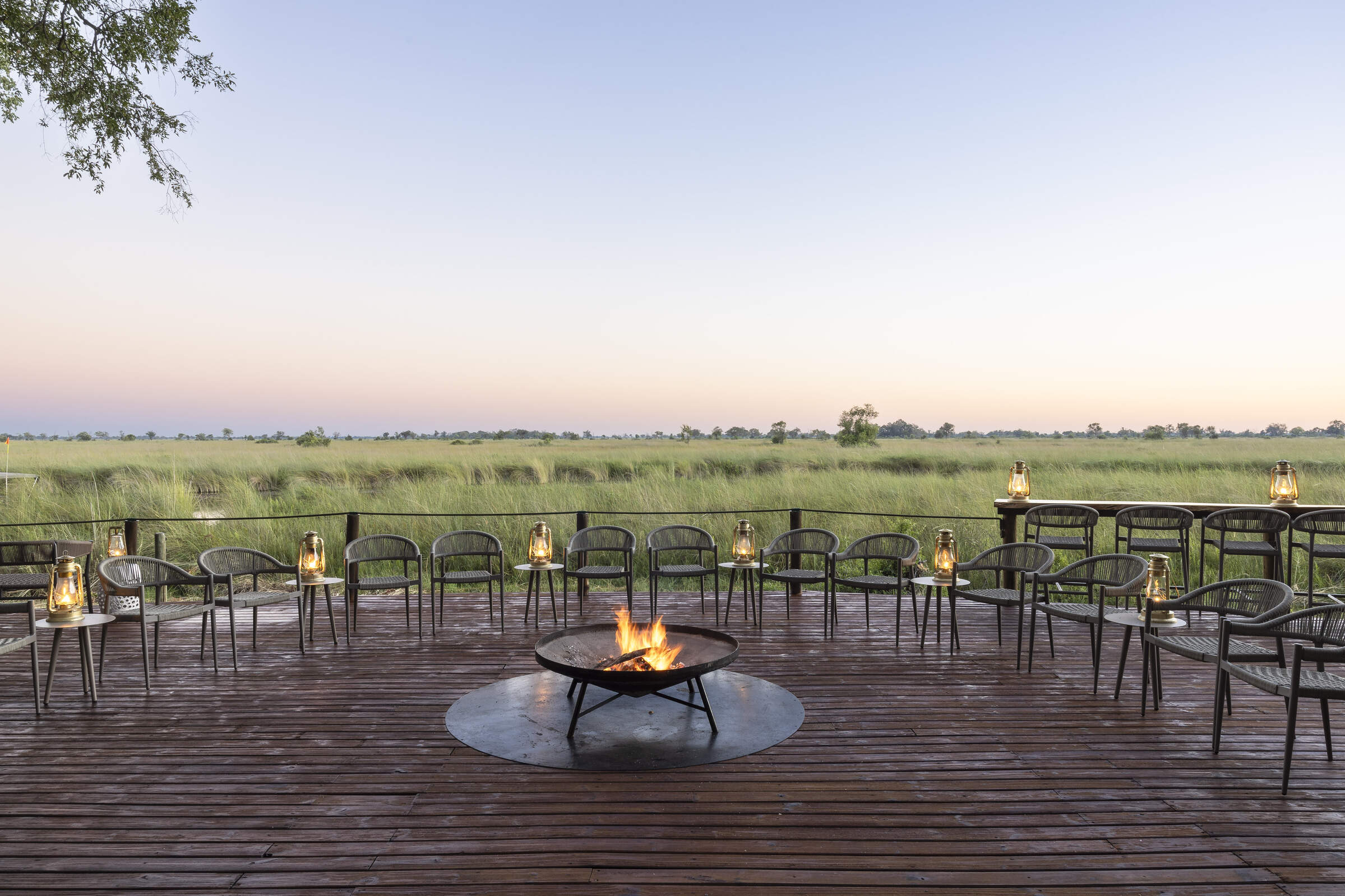
Okuti
With an innovative design and good service, Okuti Camp offers game drives and boat trips in a beautiful, game-rich part of Moremi Game Reserve.
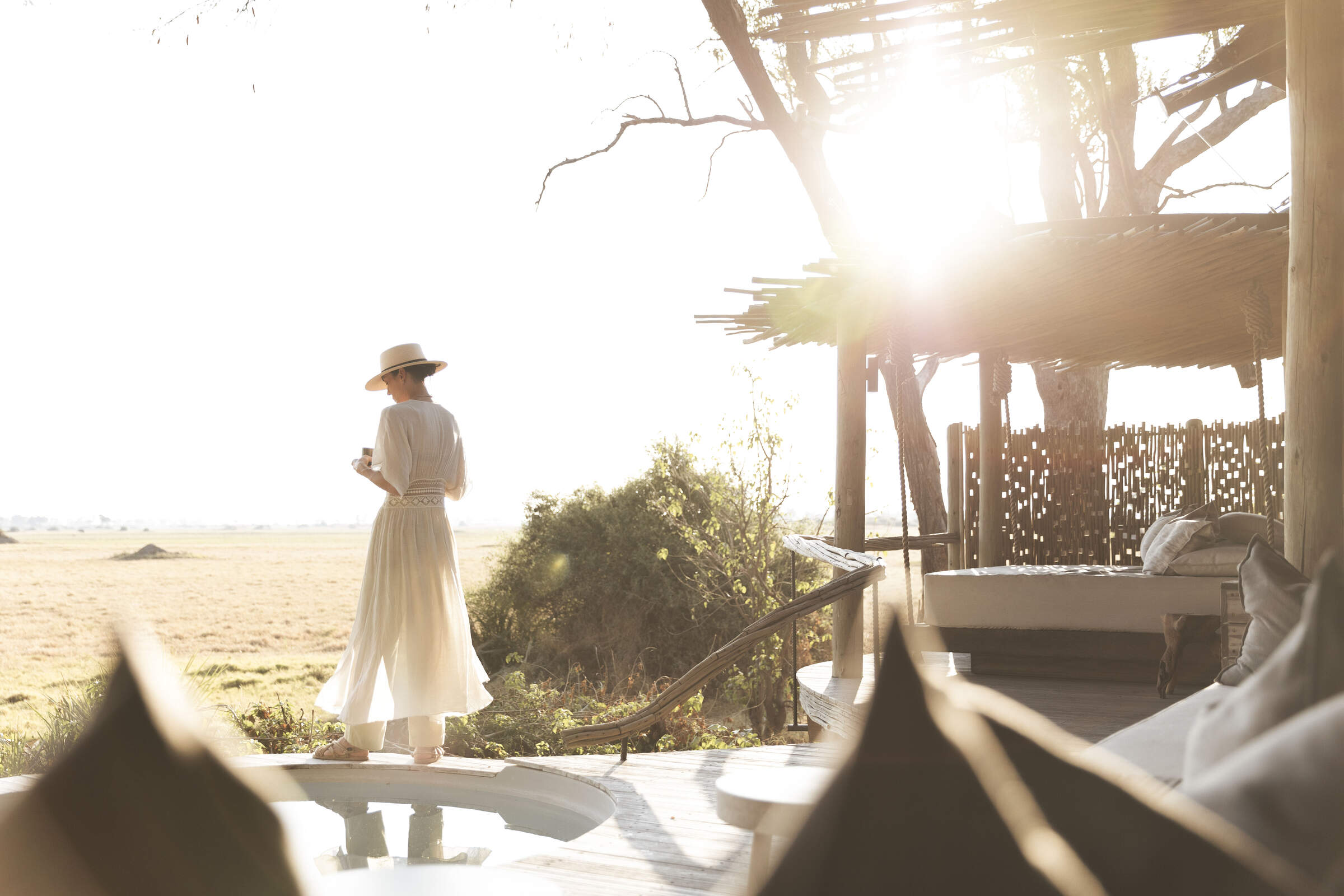
Mombo Camp
Mombo is one of Botswana's most exclusive safari camps, set in a beautiful, remote location within the Moremi Game Reserve and with exceptional game densities.
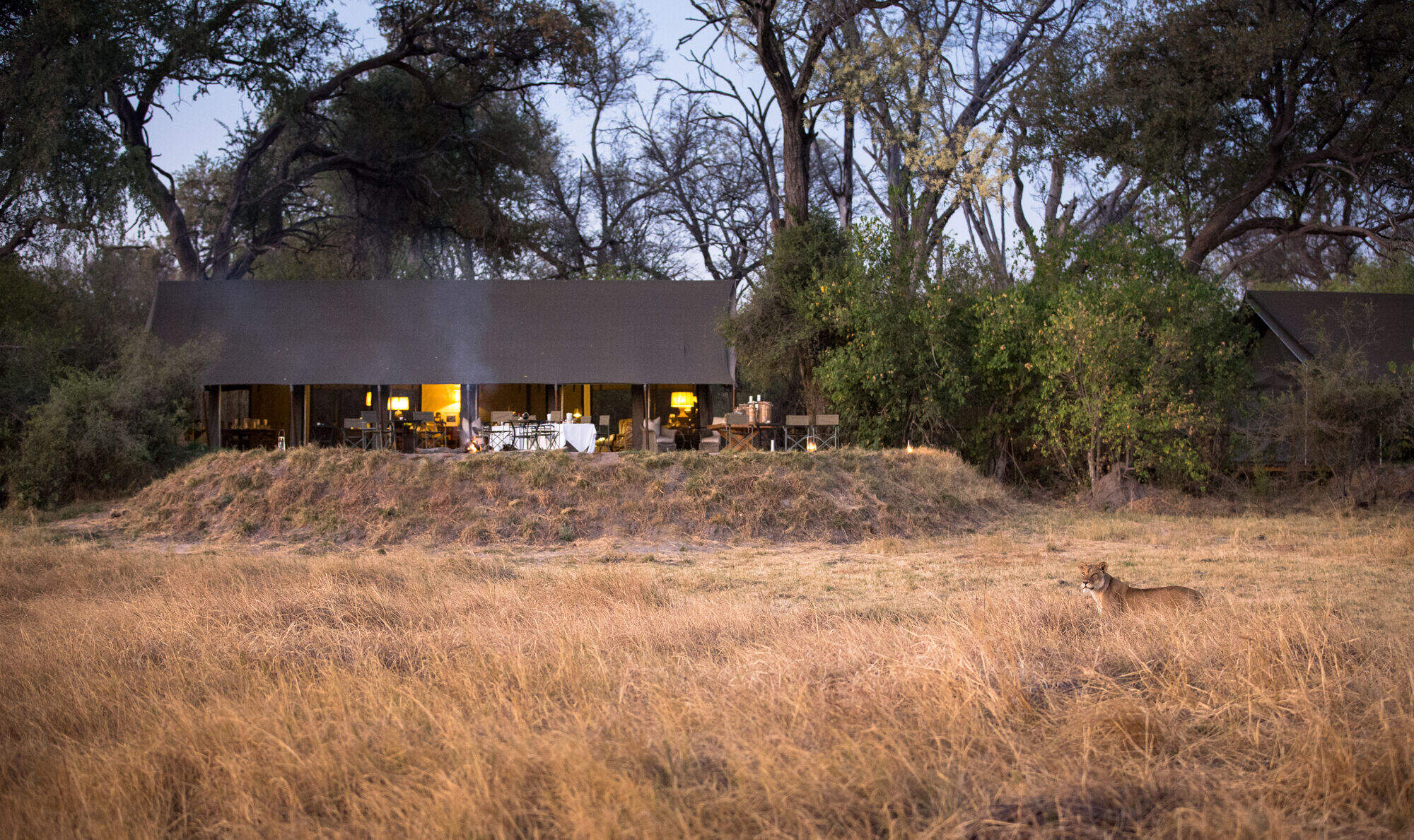
Little Machaba
Overlooking the Khwai River and Moremi Game Reserve beyond, Little Machaba is a classically designed camp with very comfortable tents in a great game-viewing area.
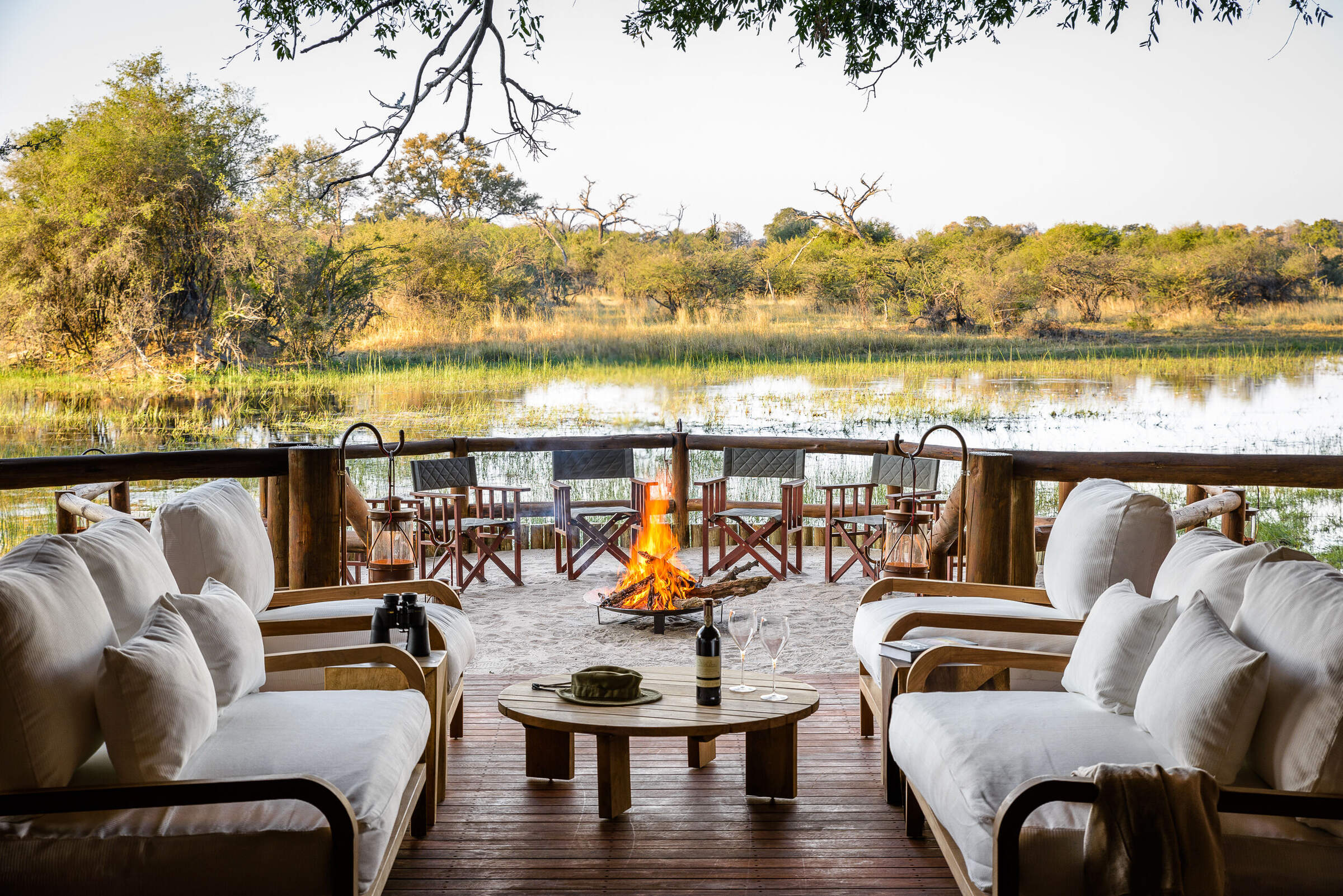
Chief's Camp
Chief's Camp is situated on Chief's Island, within the Okavango Delta's Moremi Game Reserve. Experience one of Botswana's top game-viewing areas by 4WD and mokoro.
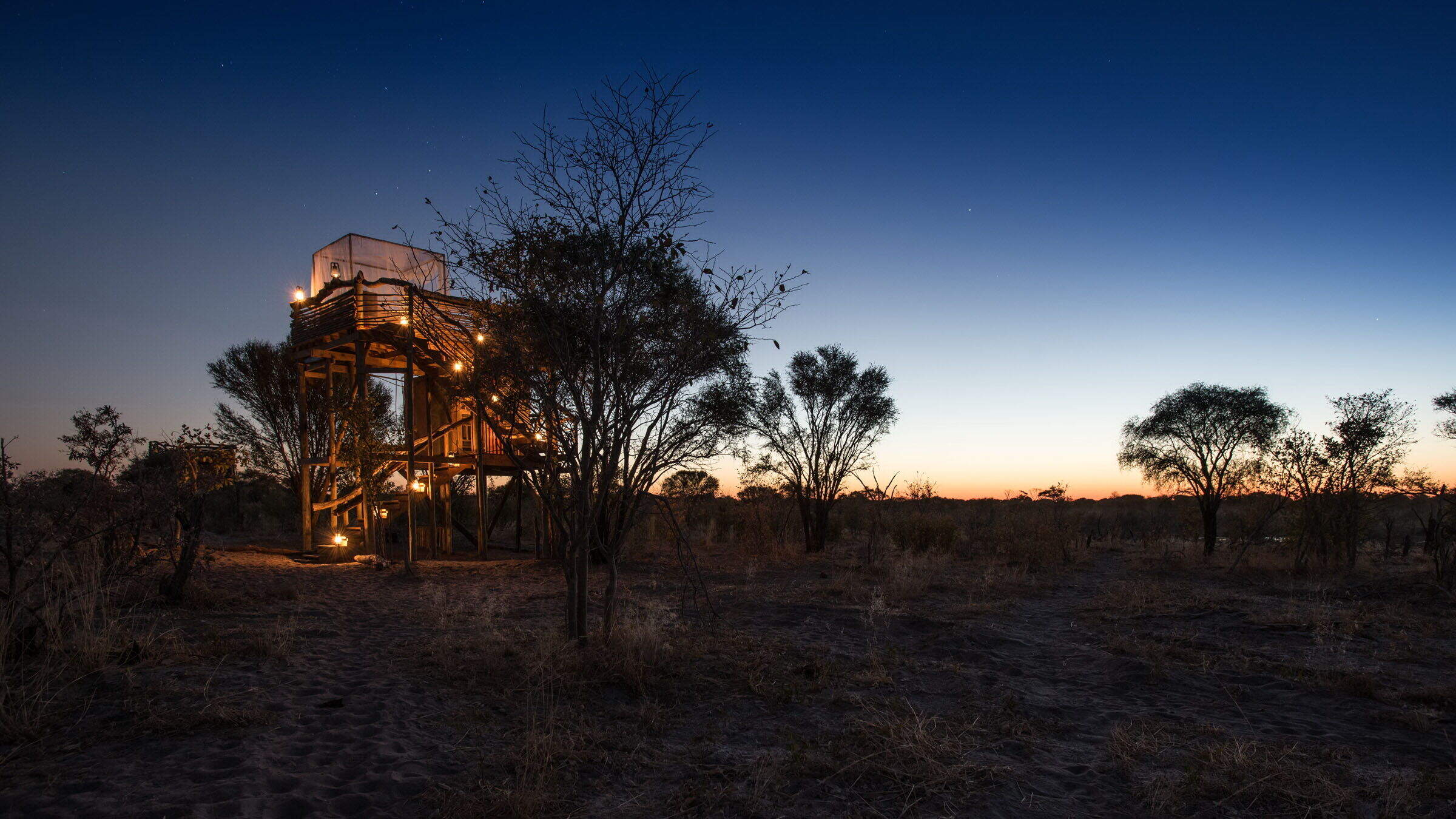
Skybeds
Situated in a private reserve close to Moremi Game Reserve, Skybeds offers a simple yet wonderful opportunity to sleep under the stars and watch wildlife from your bed.
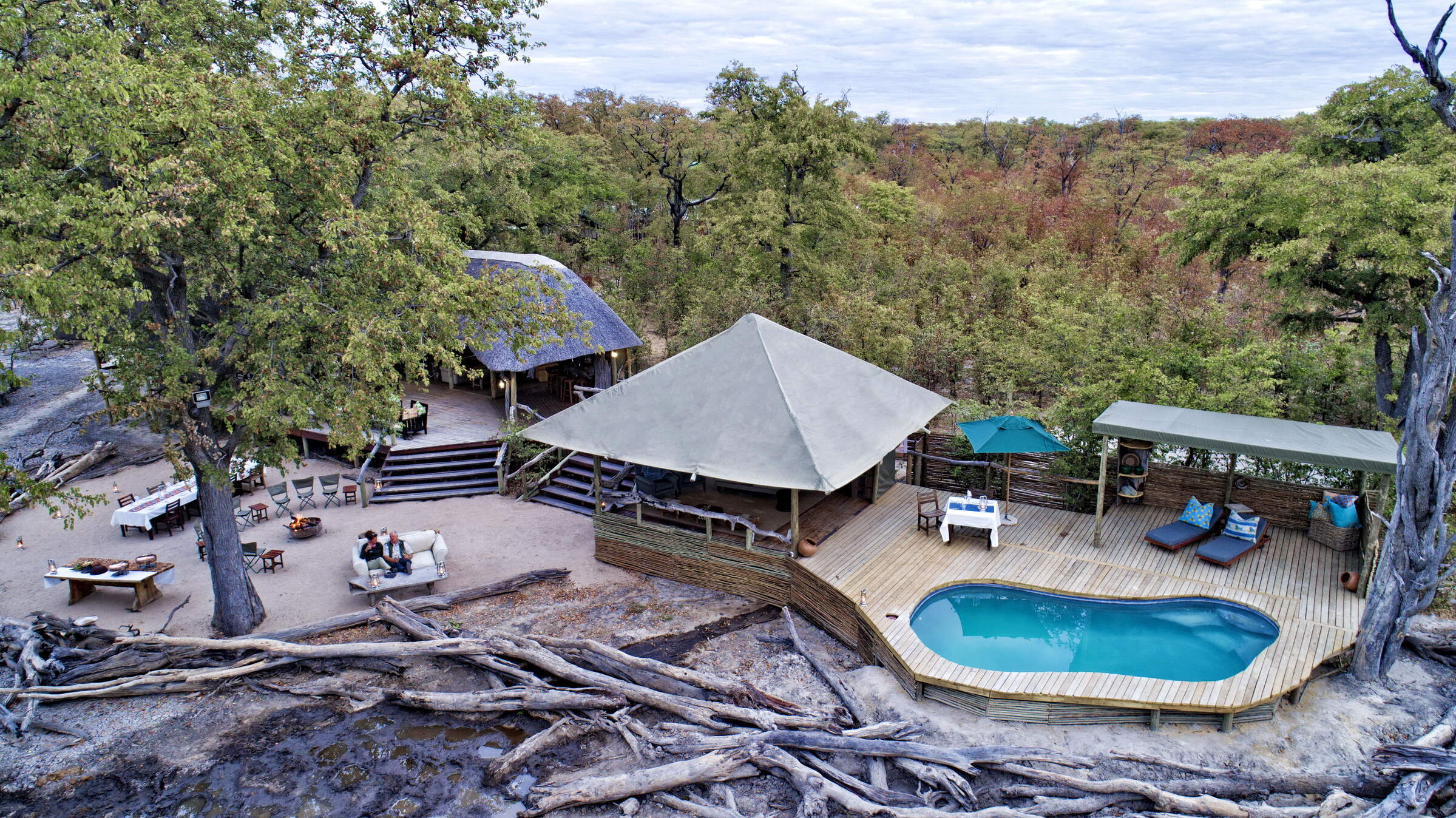
Elephant Pan
Fairly rustic, and relatively inexpensive, Elephant Pan overlooks a natural waterhole that attracts an almost constant parade of animals.
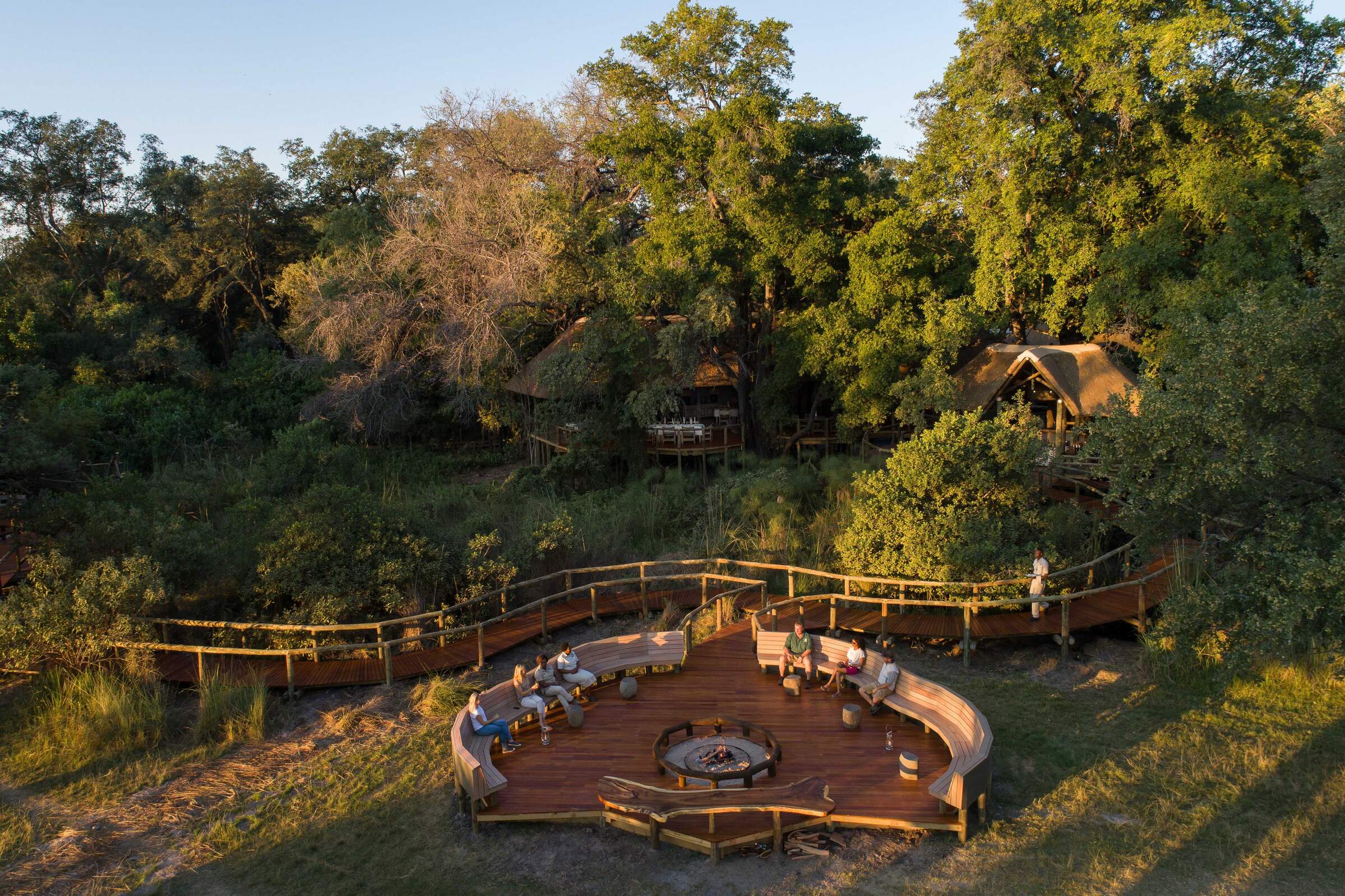
Camp Moremi
In one of the best locations for game viewing in Botswana, Camp Moremi sits at the tip of the Mopane Tongue, overlooking Xakanaxa Lagoon.
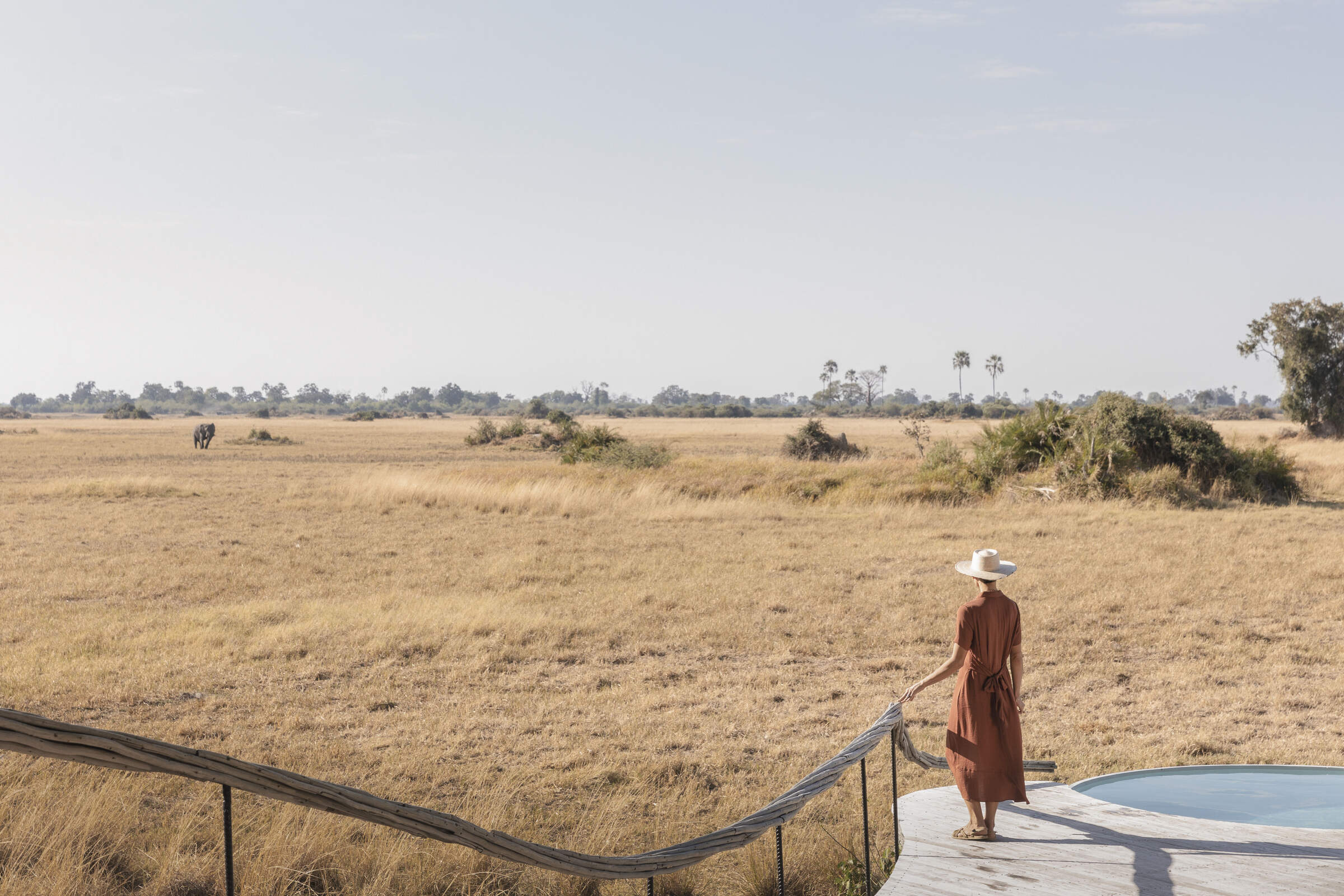
Little Mombo
One of Botswana's top safari camps, Little Mombo stands on the north side of Chief's Island, in the heart of the Okavango Delta's Moremi Game Reserve.
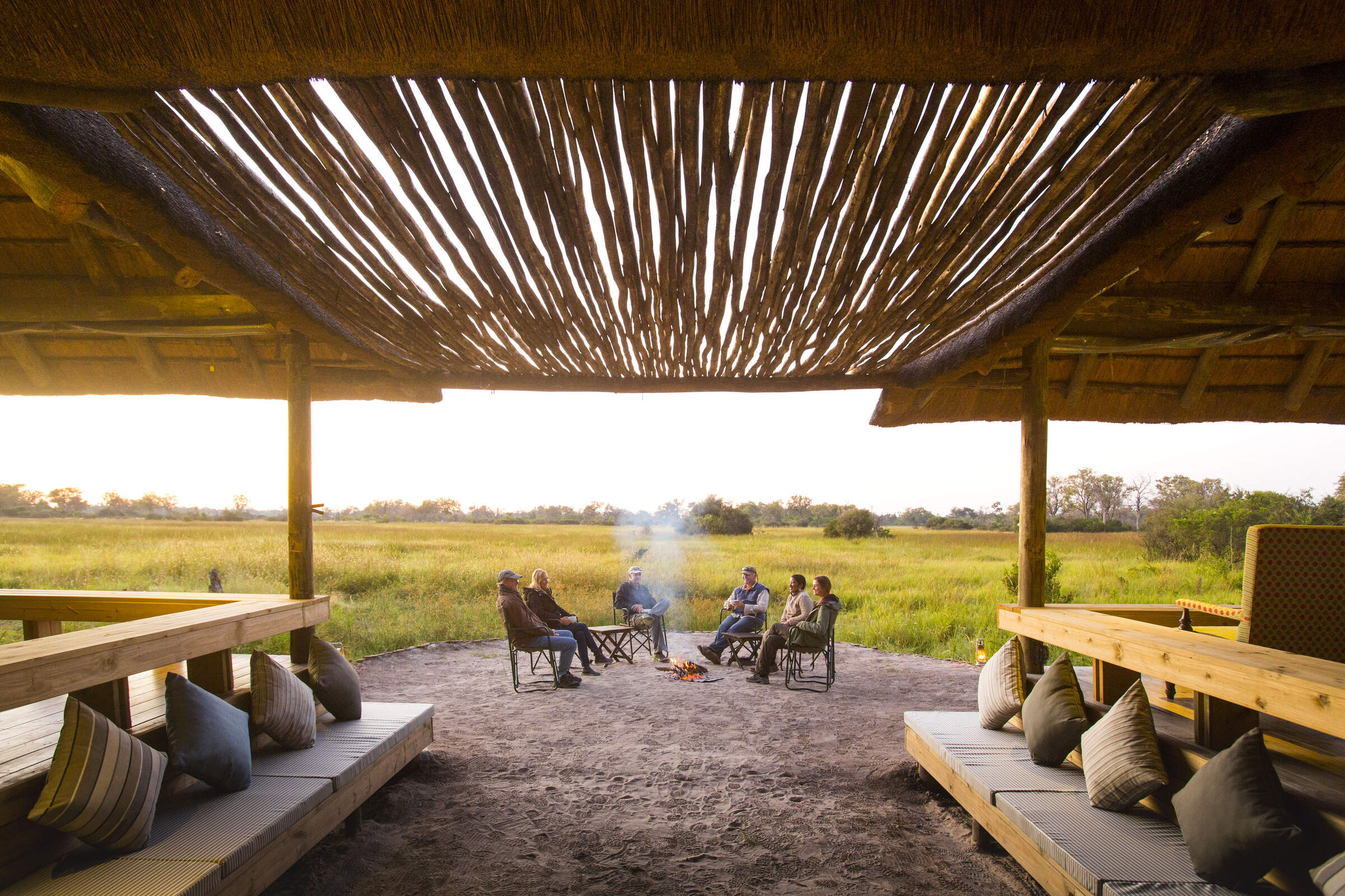
Little Sable
Little Sable camp is located in the Khwai Private Reserve – which borders the Moremi Game Reserve and Chobe
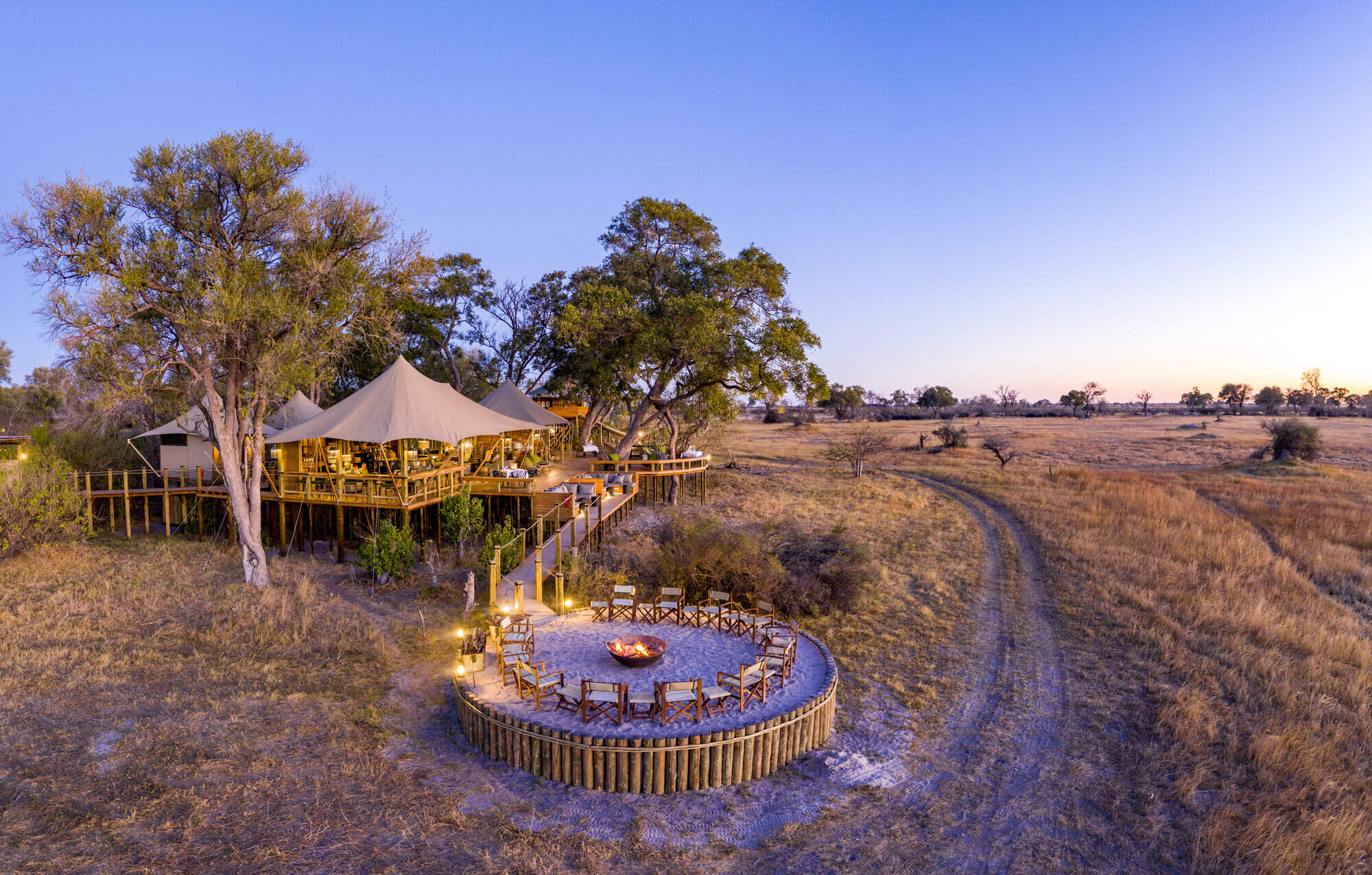
Tuludi
Tuludi is a brand new luxury camp, within the Khwai Private Reserve, built on a site under giant leadwood trees and overlooking the Okavango Delta floodplains.
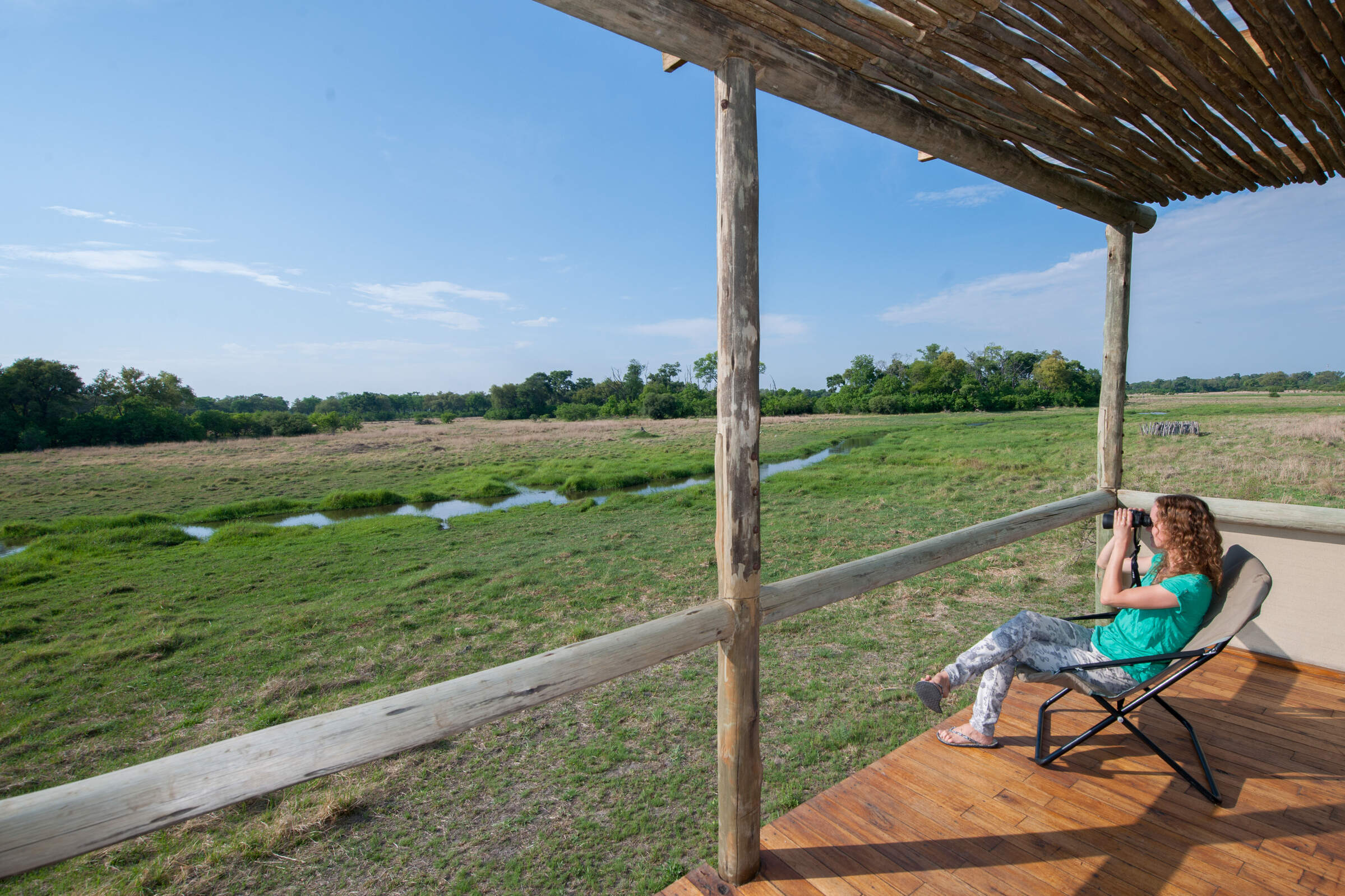
Sango Safari Camp
Sango offers comfortable tented accommodation, without some of the frills often found in Botswana's camps, with an area that's scenic and gets excellent, consistent game sightings.
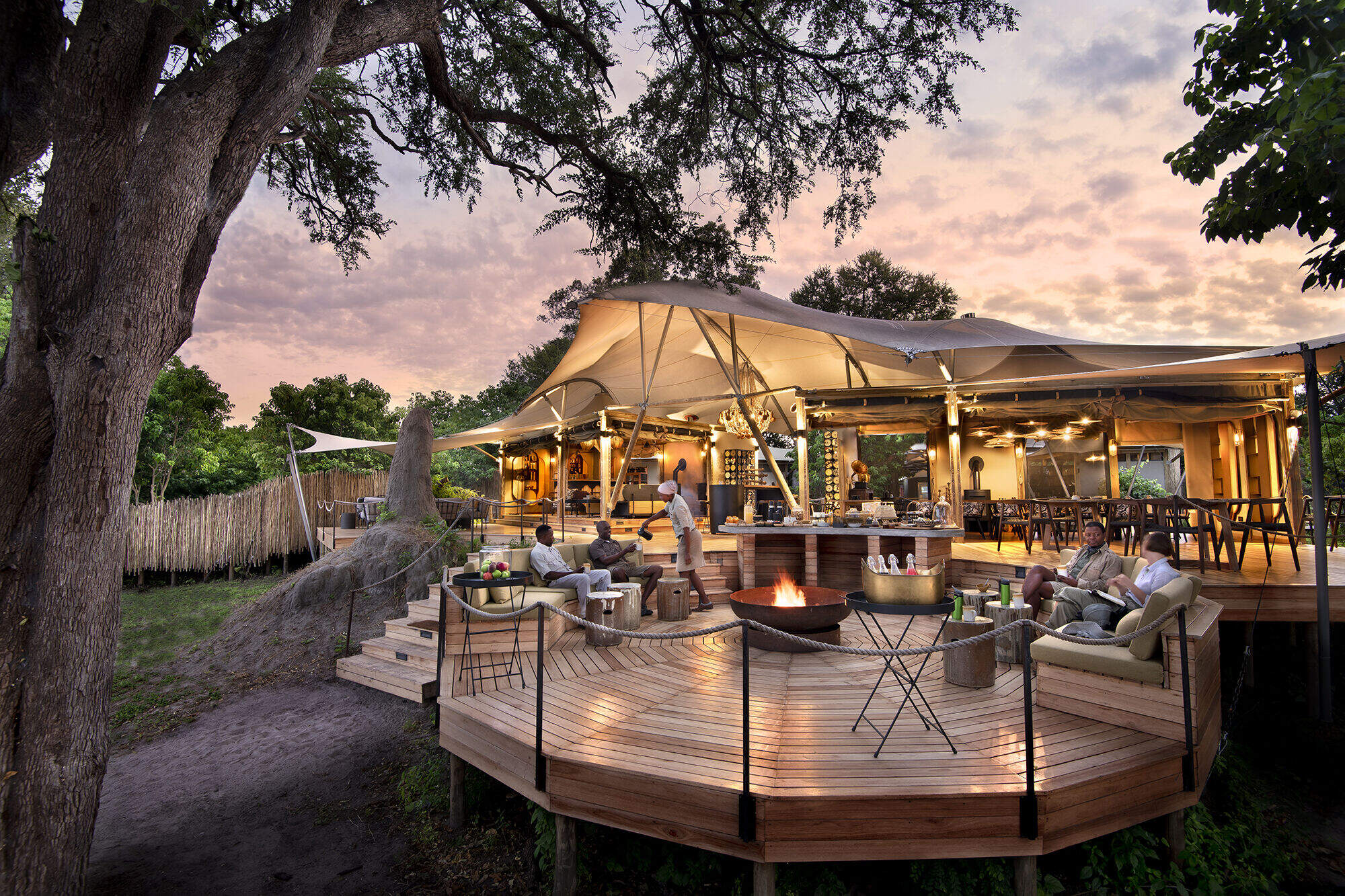
Khwai Leadwood
Khwai Leadwood is a luxurious lodge located in the heart of the Khwai Community Concession, offering guests exceptional service, stunning scenery, and unforgettable wildlife experiences.
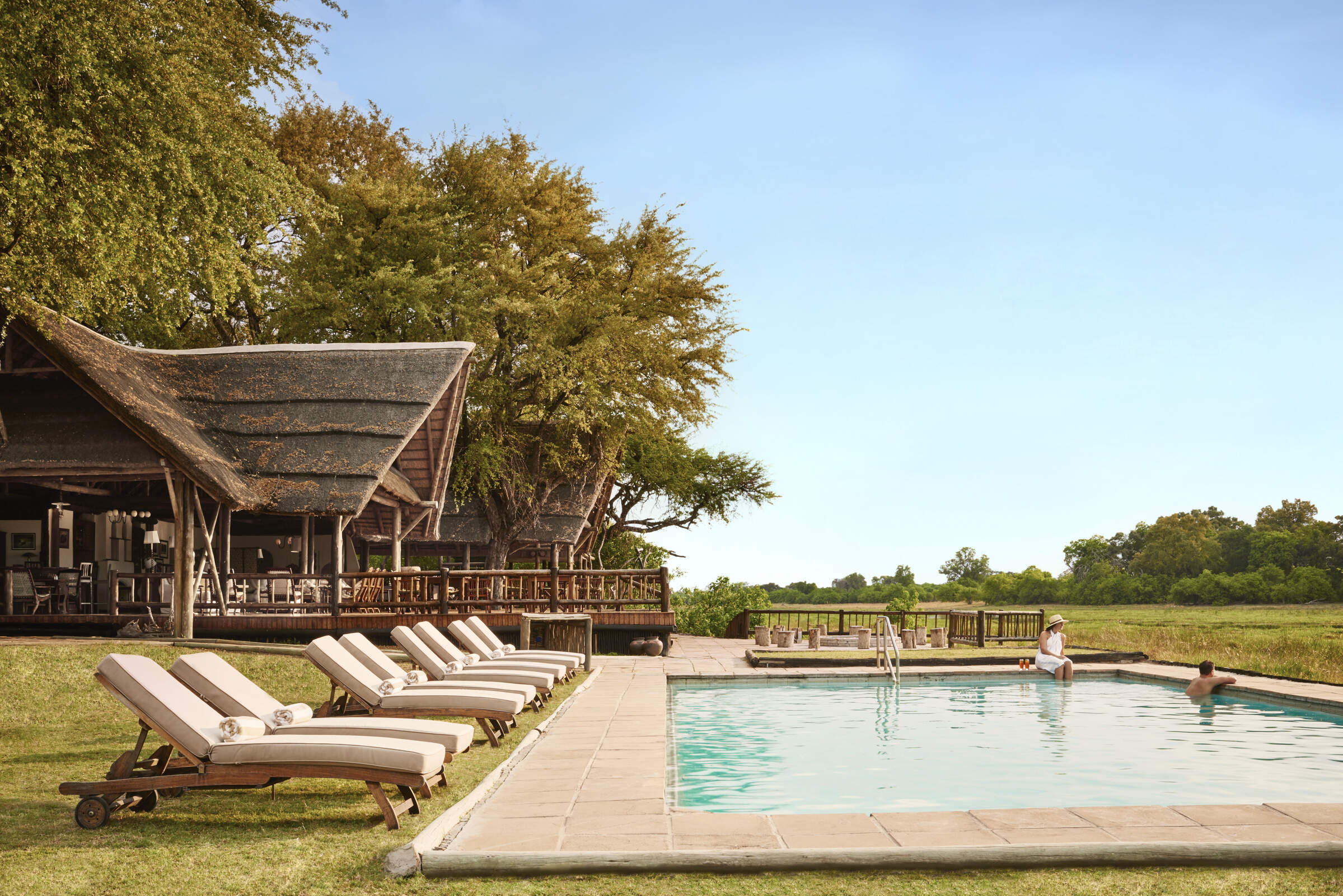
Khwai River Lodge
Khwai River Lodge is a luxurious and well-equipped safari camp, on the northern edge of Moremi Game Reserve. This area isn't exclusive, but it is beautiful and has excellent game.
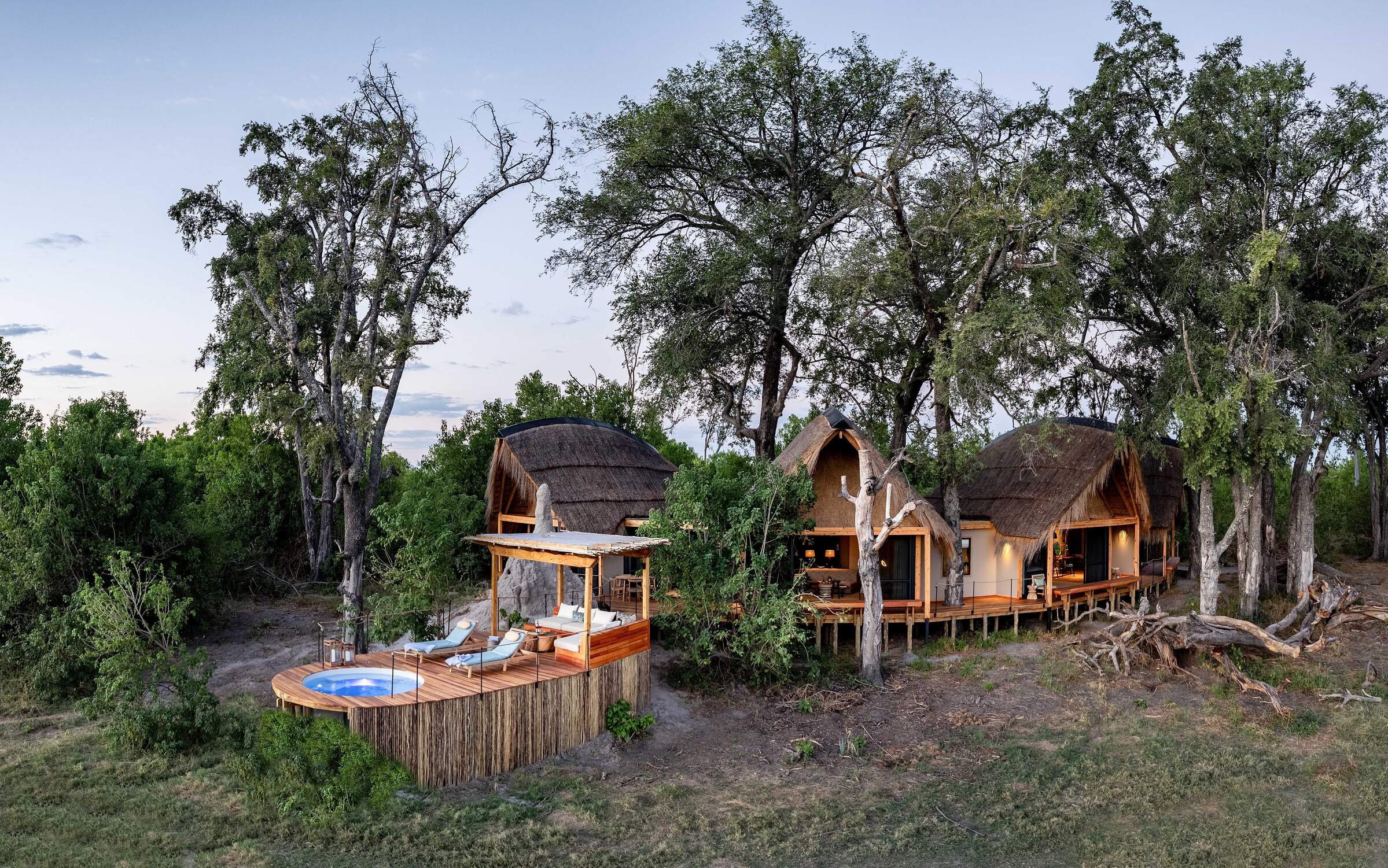
Tawana
An exclusive new lodge on the banks of the Gomoti River, Tawana has just eight very spacious suites.
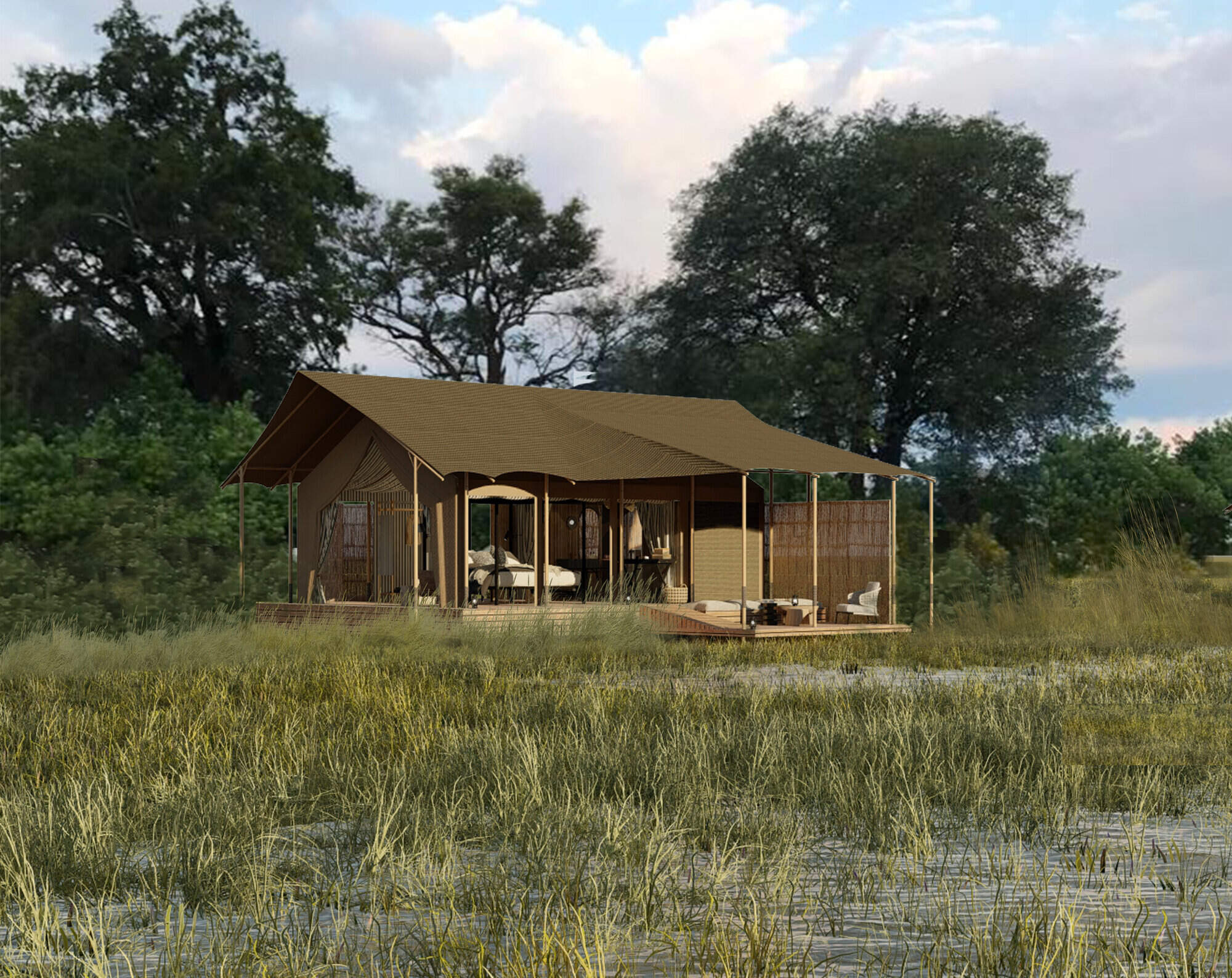
Monachira
A new lodge in Moremi Game Reserve, with a focus on water-based activities, the family-friendly Monachira will be opening in May 2025.
When to go to Mokete & the Mababe Depression
Our month by month guide: What it's like to visit Mokete Camp in the Mababe Depression
Jan
Feb
Mar
Apr
May
Jun
Jul
Aug
Sep
Oct
Nov
Dec
Moremi Game Reserve in January
January is the height of the rainy season in Moremi Game Reserve. Evening showers and occasional thunderstorms cool the air, making temperatures more comfortable than the peak heat of October to December. Wildlife disperses across the landscape, but the Khwai River area still offers good sightings of lions and elephants.
January is also an exceptional time for birdwatching, with migratory species abundant and breeding activity in full swing. The lush greenery creates stunning photographic opportunities, while mokoro excursions allow for tranquil exploration of waterways. Despite the rain, Moremi’s diverse ecosystems, including mopane forests and waterways, offer unique wildlife viewing opportunities. Lower visitor numbers mean better rates at camps and lodges.
- Warm with occasional heavy thunderstorms
- Spectacular birdlife throughout the reserve
- Wildlife dispersed in the floodplains and woodlands
- Good availability in camps and lodges
Our view
A good time to visit, with pros & cons
Weather in January
Moremi Game Reserve in February
February in Moremi Game Reserve sees the wet season continue, with heavy evening rains and cooling temperatures. The reserve is green and vibrant, alive with insects, smaller animals, and many animals are raising their young. The Xakanaxa Lagoon area is particularly rich in wildlife diversity at this time.
While thicker vegetation makes spotting larger animals more challenging, patient observers may encounter leopards or antelope species. Birdwatching remains a highlight, with over 500 species, including many in colourful breeding plumage. High water levels make boat trips a wonderful way to explore the intricate waterways of the Delta. Visitor numbers are low, offering a more intimate safari experience and better availability at luxury camps.
- Warm temperatures with some thunderstorms
- Abundant birdlife, including breeding species
- Wildlife raising young across the reserve
- Game viewing improving in central areas
- Low visitor numbers and good camp availability
Our view
This is not a great time to visit
Weather in February
Moremi Game Reserve in March
March marks the end of the rainy season, with fewer storms and more sunny days. The landscape remains lush, and wildlife activity increases as animals finish raising their young. This is an ideal time for photography, with the green scenery providing dramatic backdrops.
While thick vegetation can still make wildlife spotting challenging, patient observers may be rewarded with sightings of predators like lions and leopards, especially in the Khwai River area. Birdwatching continues to be exceptional, with many migratory species still present. Water-based activities like boat cruises offer unique perspectives on the delta's wildlife. With fewer visitors, March provides a quieter, more exclusive safari experience in Moremi’s mopane forests to expansive floodplains.
- Variable weather, rains easing off with occasional thunderstorms
- Many animals finishing raising their young
- Excellent birdwatching and photography opportunities
- Few visitors and lower rates in camps
Our view
A good time to visit, with pros & cons
Weather in March
Moremi Game Reserve in April
April in Moremi Game Reserve typically signals the end of the rainy season, with clearer skies and a vibrant green landscape. Night temperatures begin to drop, particularly in the southern areas of the reserve. Game viewing improves as vegetation starts to thin, making it easier to spot wildlife. This is also an excellent time for boat excursions, offering intimate encounters with aquatic wildlife and bird species.
Birdwatching remains highly rewarding, with many species still nesting or breeding. The Xakanaxa Lagoon area is especially rich in wildlife diversity during this period. With the shoulder season underway, visitors can enjoy better value at top camps. April strikes a wonderful balance of pleasant weather, diverse wildlife sightings, and fewer tourists.
- Cooler evenings with occasional showers
- Lush green landscapes after the rains
- Improved predator-prey interactions
- Quiet period with relatively low rates
- Water levels rising - ideal for boat safaris
Our view
A good time to visit, with pros & cons
Weather in April
Moremi Game Reserve in May
May is one of the best months to visit Moremi Game Reserve. The annual floodwaters from Angola start to reach the Delta, creating ideal conditions for water-based safaris. Cooler mornings and evenings heighten predator activity, although tall grasses in some areas may still obstruct views.
The Khwai River and Chief’s Island are prime locations for spotting large herds of elephants and buffalo. Birdwatching remains excellent, with over 500 species recorded in the reserve. May is perfect for combining game drives and boat excursions, offering a diverse and rewarding safari experience. Clear, crisp evenings also provide outstanding stargazing opportunities. As shoulder season ends, value-conscious travellers should book early to secure availability at camps and lodges before peak rates apply.
- Cool mornings and evenings with little rain
- Game viewing improves as grasses thin
- Increased predator activity in the reserve
- Final month of shoulder season - rates still reasonable
- Availability becomes limited as demand rises
Our view
A very good time to visit
Weather in May
Moremi Game Reserve in June
June marks the start of the dry season in Moremi Game Reserve. Mornings and evenings are cool, sometimes reaching freezing at night, while daytime temperatures rise to 25-30°C/77-86°F with clear skies. The air clarity is excellent for photography. As surface water diminishes, wildlife starts to congregate around remaining water sources.
Game viewing improves significantly throughout Moremi, but especially in the Khwai River area and around Xakanaxa Lagoon. June is perfect for night drives, which are possible in areas outside the reserve. Birdwatching remains excellent, with many water birds concentrated around permanent water bodies. With peak season approaching, many camps and lodges are becoming much busier and so booking well in advance is wise.
- Warm days, cold nights in Moremi
- Excellent conditions for wildlife photography
- Animals congregating around water sources
- Vegetation thinning, improving visibility
- Peak season starts, rates increase
Our view
Fantastic: the very best time to visit
Weather in June
Moremi Game Reserve in July
July in Moremi Game Reserve offers cool mornings and evenings, combined with excellent game viewing. The thinning vegetation and concentration of wildlife around water sources make this one of the best months for safari experiences. The Khwai River area and Chief's Island are particularly rewarding, with high chances of spotting big cats and large herds of elephants and buffalo.
Water-based activities like motorboat cruises on the permanent waterways provide unique wildlife viewing perspectives. Birdwatching remains excellent, with large concentrations of water birds. July is ideal for photography, with clear skies and animals gathering at waterholes. Night drives offer opportunities to spot nocturnal species.
- Comfortable days, cold nights in the reserve
- Excellent game viewing as vegetation recedes
- Khwai area becomes busy with visitors
- Private concessions offer exclusive experiences
- Peak season with high rates in most camps
Our view
Fantastic: the very best time to visit
Weather in July
Moremi Game Reserve in August
August is a popular time to visit Moremi Game Reserve, coinciding with peak safari season. Temperatures are generally cold at night and comfortable during the day, rising towards month-end. Wildlife congregates around remaining water sources, making game viewing exceptional.
The Khwai River area offers excellent predator sightings, though can be very busy with travellers. August is one of the best times to experience the delta floods at their peak, ideal for boating safaris. Birdwatching is rewarding, with large concentrations of water birds. The clear, dry conditions create spectacular sunsets and stargazing opportunities.
- Dry, warm days and cool nights in Moremi
- Fantastic wildlife watching, especially in the Delta
- Okavango flood waters typically at their peak
- Stargazing opportunities on clear nights
- High rates and limited availability in camps
Our view
Fantastic: the very best time to visit
Weather in August
Moremi Game Reserve in September
September in Moremi Game Reserve sees warming daytime temperatures while nights remain cool. The dry conditions create a hazy atmosphere, resulting in stunning sunsets. Game viewing is excellent, with large numbers of elephants and buffalo congregating in the Khwai River area and around Xakanaxa Lagoon. Predator sightings are frequent, especially around water sources.
September is ideal for walking safaris and night drives, offering unique wildlife encounters outside the borders of the reserve. Birdwatching remains rewarding, with migrant birds beginning to return. Water-based activities provide close encounters with aquatic wildlife whilst the clear night skies offer excellent stargazing opportunities.
- Warmer days, cool nights in the reserve
- Prime month for wildlife viewing in Moremi
- Large elephant herds visible near water
- Hazy conditions create dramatic sunsets
- Peak season rates, many lodges fully booked
Our view
Fantastic: the very best time to visit
Weather in September
Moremi Game Reserve in October
October is one of the hottest and driest months in Moremi Game Reserve. The lack of water and vegetation results in excellent big-game viewing, particularly around the remaining water sources. Water levels are lower, limiting some water-based activities, but concentrating wildlife for easier viewing.
October is excellent for walking safaris and night drives, both possible outside the park, which provide unique perspectives on the Okavango’s ecosystems. Birdwatching remains rewarding, with many migrant species arriving. The dry, hazy conditions create dramatic landscapes and stunning sunsets, ideal for photography. The most luxury provide comfortable and cool bases for exploring the reserve during this intense wildlife period.
- Hot days, chance of rain late in the month
- Excellent big game viewing opportunities
- Water activities limited as flood waters recede
- Last month of peak season in Moremi camps
- Migratory birds begin to arrive in the reserve
Our view
Fantastic: the very best time to visit
Weather in October
Moremi Game Reserve in November
November usually marks the end of the dry season in Moremi Game Reserve, with increasing temperatures and humidity often culminating in the first rains. These short, heavy showers bring a flush of green to the landscapes. Wildlife begins to disperse as water becomes more available, but game viewing still remains very good.
November is fantastic for birdwatching, with the arrival of many migrant species. The first rains create spectacular skyscapes and rainbows, offering unique photographic opportunities. Water levels start to rise, gradually improving conditions for mokoro excursions. The prices at luxury camps reduce to shoulder-season levels, offering bargains for value-conscious travellers wanting to balance of wildlife viewing and comfort.
- Hot days, sometimes humid in Moremi
- Increasing likelihood of rain as month progresses
- Wildlife less concentrated but still good viewing
- Arrival of migratory birds enhances birdwatching
- Shoulder season begins, rates become lower
Our view
A good time to visit, with pros & cons
Weather in November
Moremi Game Reserve in December
December in Moremi Game Reserve sees the continuation of the rainy season, bringing some relief to the high temperatures. While game viewing becomes more challenging as wildlife disperses, great sightings can still be had in key areas. The landscape transforms with lush vegetation, creating beautiful scenery. December is excellent for birdwatching, with migratory birds in full attendance and many species breeding.
The rejuvenated waterways enhance boat safari experiences, offering unique perspectives on the Delta's ecosystem. Afternoon thunderstorms create dramatic skies, perfect for landscape photography. Luxury camps offer lower season rates, providing excellent value for experiencing Moremi's diverse wildlife and stunning landscapes during this vibrant time of year.
- Temperatures cooling from October-November highs
- High chance of rain, usually short heavy storms
- Birds in breeding plumage and often including migrants
- Wildlife more dispersed
- Low-season rates available in most camps
Our view
A good time to visit, with pros & cons
Weather in December

Looking for inspiration on where to travel next?
Visit our trip chooser to explore your options and find inspiration for your perfect African adventure
Inspire me